The 56 greatest songwriters of all time
Who have you voted the greatest pop/rock tunesmiths ever?
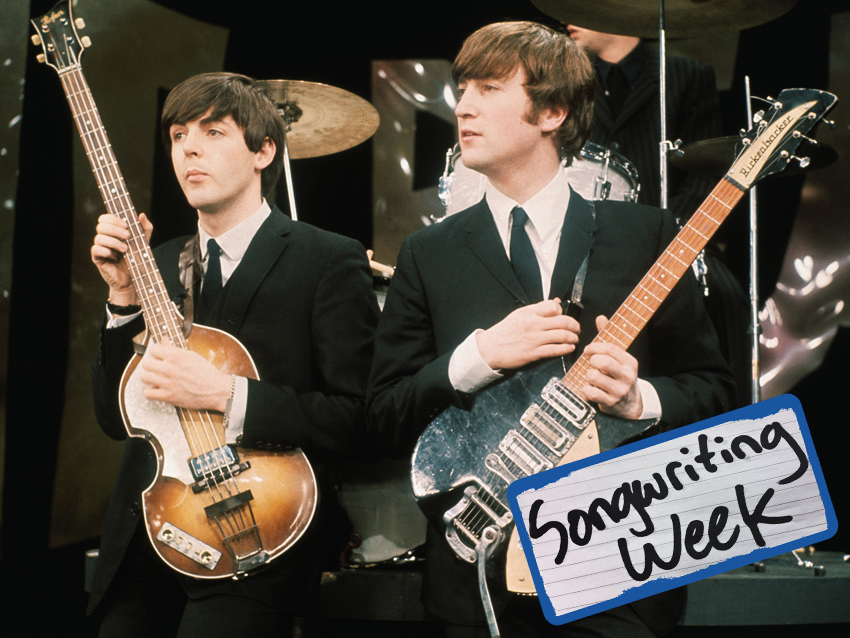
Do the write thing
SONGWRITING WEEK: Singers and bands may come and go, but a great song can stick around forever. It’ll be played endlessly on the radio, covered by different artists and in all manner of styles, and murdered by fame-hungry TV talent show contestants.
We should celebrate, then, the people who craft these songs - the writers who spend hours honing their skills and coming up with the hooks, melodies, chord progressions and lyrics that stick in our heads. They’re motivated by all manner of different things - love, hate or maybe just cold, hard cash - but they all have the ability to take an idea and turn it into a great tune that resonates with its audience.
We asked MusicRadar users to nominate the greatest rock and pop songwriters of all time and then put these nominations to the vote. The result is the massive gallery of great songwriters that follows - let’s dive in.
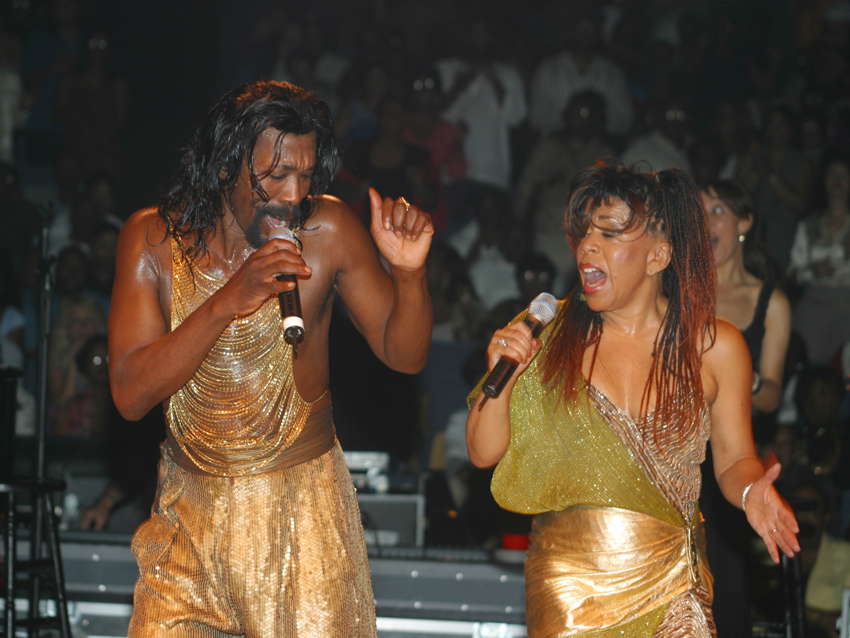
Nick Ashford/Valerie Simpson
You may know Ashford & Simpson as a recording duo (they had a big hit with Solid (As a Rock) in 1985) but it was as a songwriting partnership that they made their name.
The dream Motown duet team of Marvin Gaye and Tammi Terrell were fortunate enough to be able to interpret Ain't No Mountain High Enough, You're All I Need To Get By and Ain't Nothing Like the Real Thing, while Chaka Khan has them to thank for I’m Every Woman.
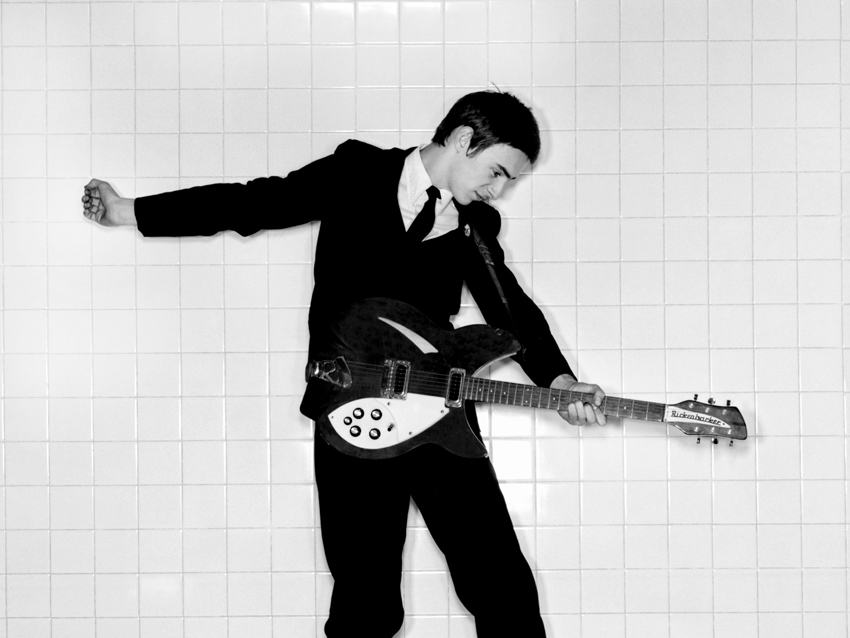
Paul Weller
The Modfather’s songs have a way of grabbing you by the lapels and shaking you around the room – perhaps a hangover from his early years as the voice of suburban angst with The Jam, but more likely because he writes with such unbridled passion.
A relentless experimenter in sound and style, while he’s best known for his embrace of foot-stomping Brit rock, his back catalogue reveals a songwriter capable of a much more. He’s written off as the king of Dad Rock by some, but there are few musicians of his vintage that can boast the razor sharp songwriting chops of Woking’s finest.
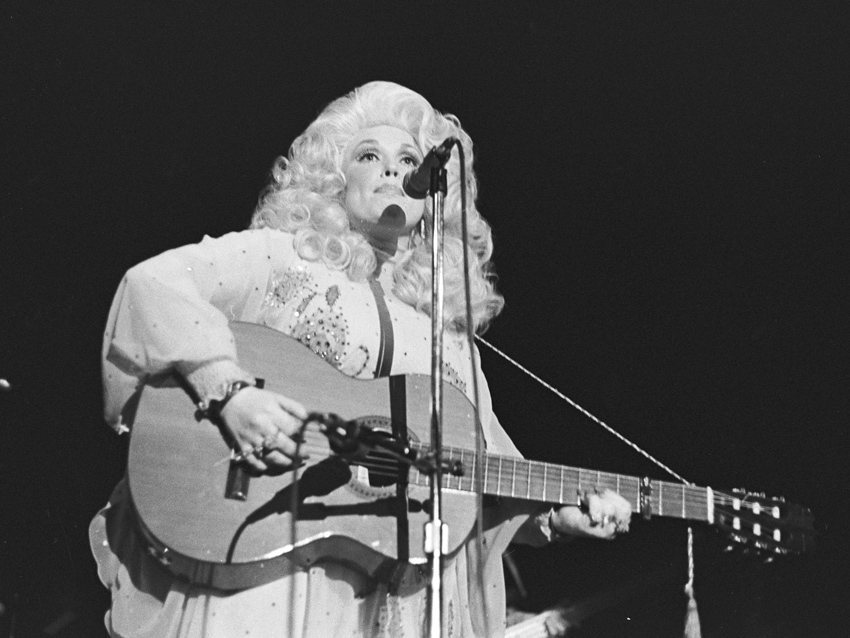
Dolly Parton
You know Jolene, you know 9-5, but did you know that Dolly wrote I Will Always Love You, which proved to be something of a minor hit for Whitney Houston? OK, you probably did.
Nevertheless, the philanthropic blonde bombshell has written more than 3,000 songs and is one of the best-selling artists of all time.
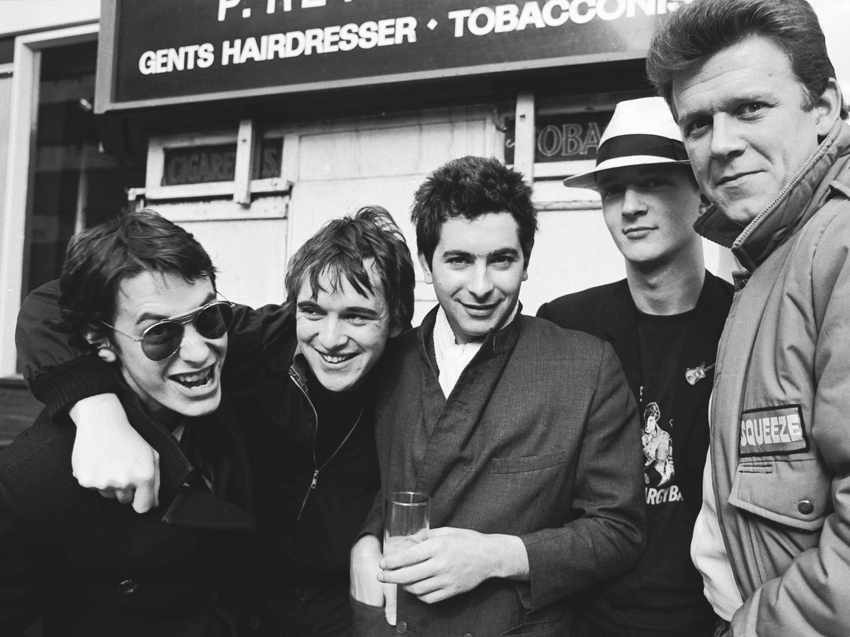
Chris Difford/Glenn Tilbrook
Regularly touted as the Lennon and McCartney of their generation, Squeeze’s songwriting partnership is responsible for some of the hookiest bittersweet pop songs of the late ‘70s.
A phenomenal run of singles including Take Me, I’m Yours, Cool For Cats, Up The Junctions and Pulling Mussels (From The Shell) planted Difford and Tilbrook firmly in the British national consciousness, another fine addition to the UK’s catalogue of emotionally literate pop songsmiths.
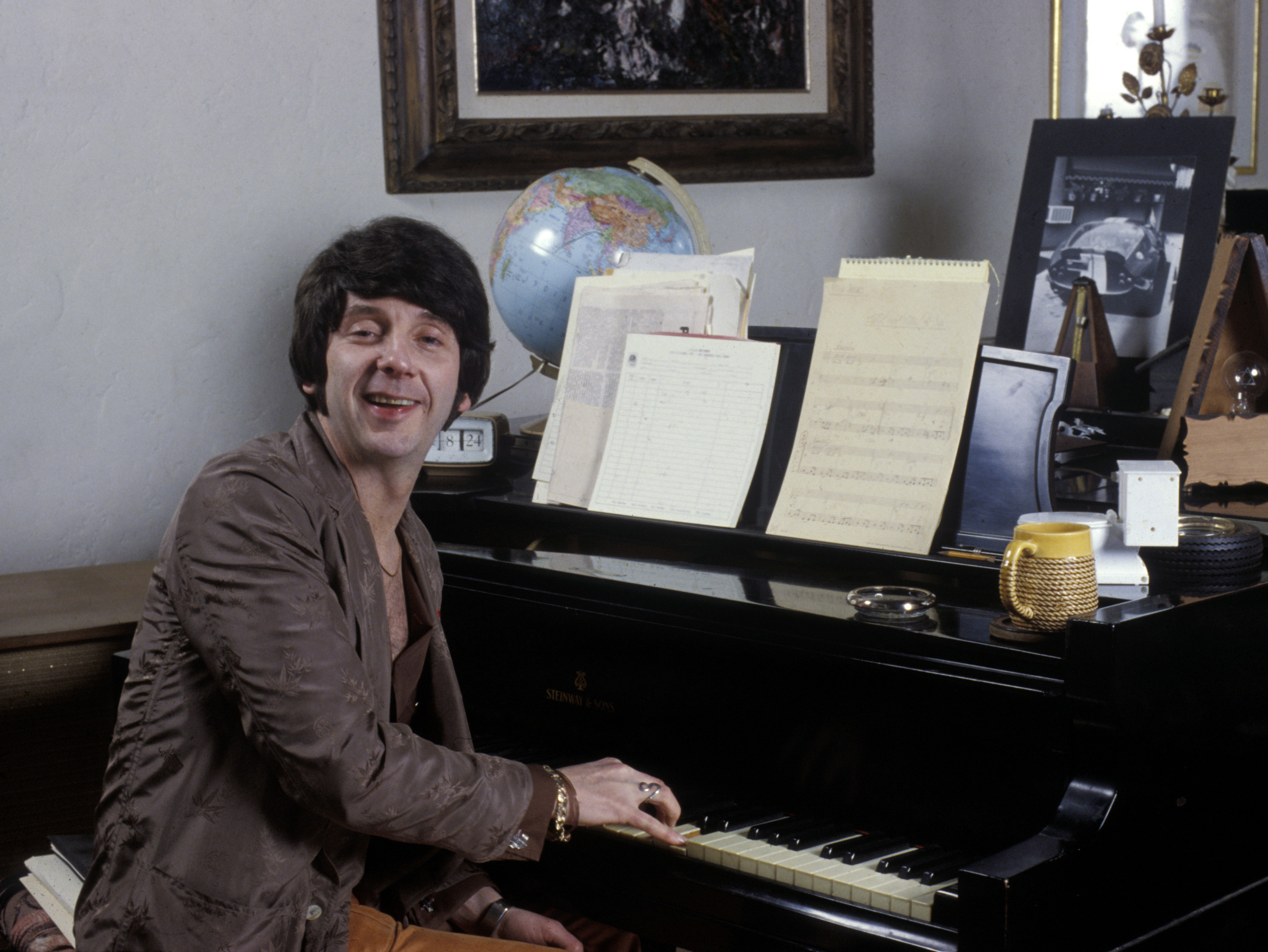
Phil Spector
For obvious reasons, it’s probably better if we ignore the later years of Phil Spector’s career and instead focus on his heyday, throughout the ‘60s and‘70s, during which time he completely redefined pop music with his iconic, multilayered Wall Of Sound approach to arrangement.
The early girl group hits that Spector co-wrote and produced were responsible for unifying the worlds of orchestral pop and rock and roll. He wrote music for orchestras of session musicians, stacking up the sounds of strings, brass, guitars, drums and Latin percussion to create pop music that was at once both complex and direct. He’s also responsible for pretty much the only decent Christmas album ever.
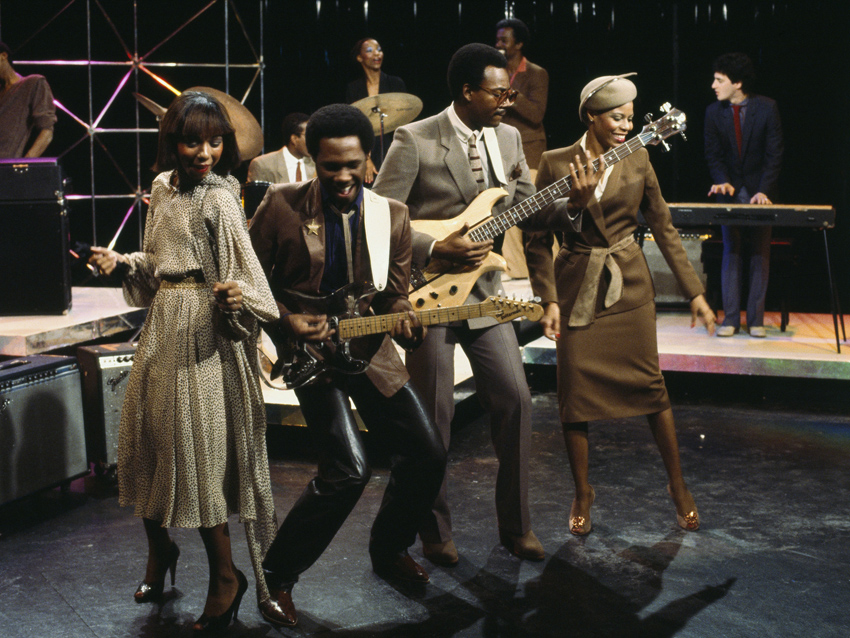
Nile Rodgers/Bernard Edwards
As if yielding a string of disco classics as Chic wasn’t enough, the Rodgers/Edwards partnership also inadvertently helped to kickstart the hip-hop revolution (Good Times was sampled by The Sugarhill Gang in Rapper’s Delight) and produced massive hits for the likes of Sister Sledge and Diana Ross.
Bassist Bernard Edwards sadly passed away in 1996, but Rodgers continues to bring the funk - most recently to Daft Punk’s monster hit Get Lucky.
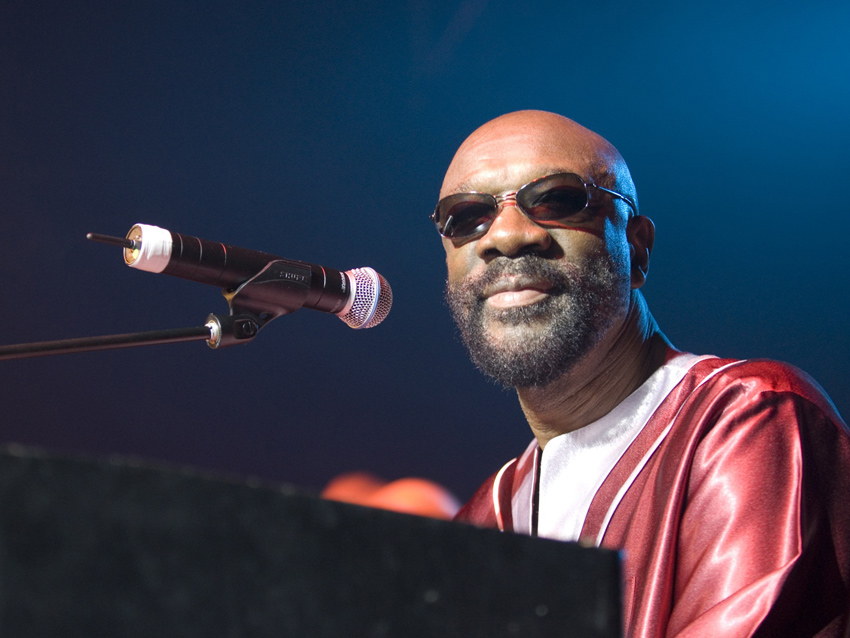
Isaac Hayes/David Porter
Hayes (pictured above) and Porter came together at Stax Records, writing the likes of Soul Man, Hold On I’m Comin and When Something Is Wrong with My Baby for Sam & Dave. They also gave material to Carla Thomas and Johnnie Taylor.
Both men would later find fame as artists in their own right, but the musical importance of the work they did together can’t be underestimated.
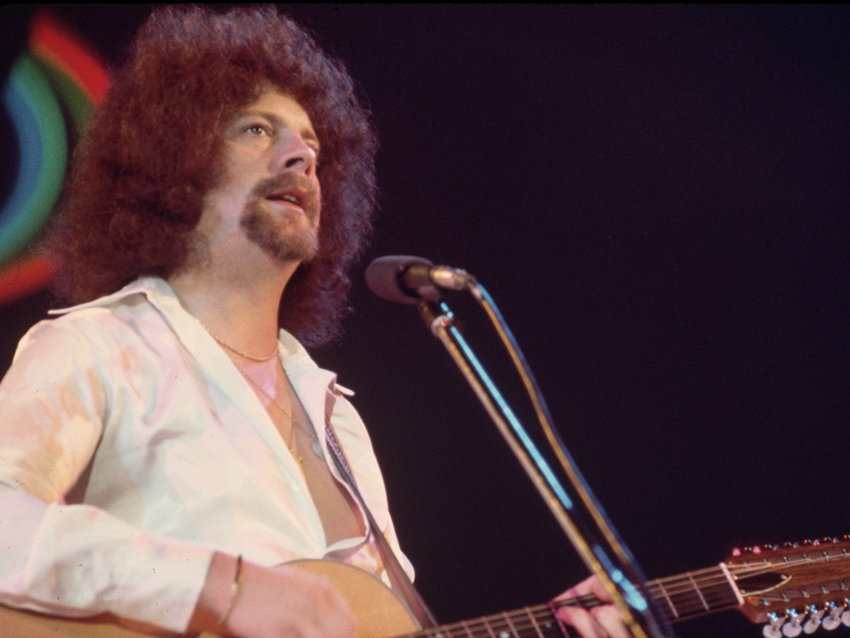
Jeff Lynne
Electric Light Orchestra had the world in their hands with their 1977 album Out Of The Blue, and Beatles-channelling pop compositions such as Mr Blue Sky and Don't Bring Me Down (from follow-up Discovery), remain among Mr Lynne's biggest hits.
Then there's 1980's Xanadu, featuring Olivia Newton John, which dominated charts on both sides of the Atlantic.
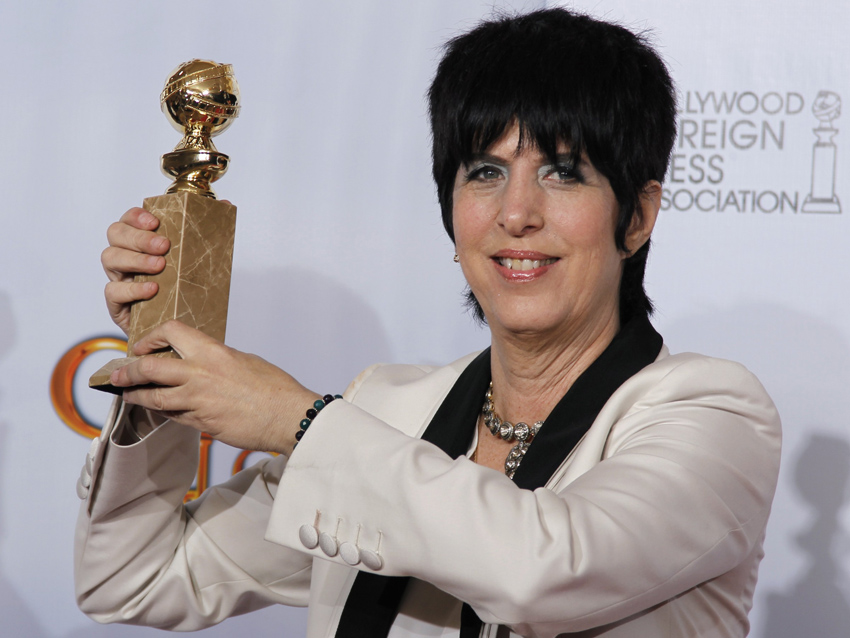
Diane Warren
The unseen force behind many a big ballad, Warren is responsible for (among many others) How Do I Live (LeAnn Rimes and Trisha Yearwood), Un-Break My Heart (Toni Braxton) and Because You Loved Me (Céline Dion).
The message is clear: if you want a hit, give her a call.
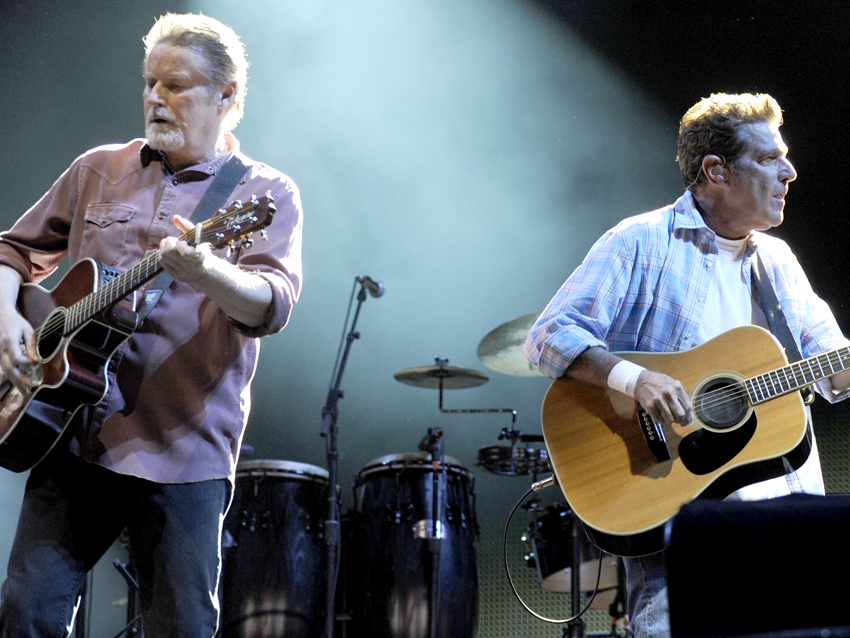
Don Henley/Glenn Frey
In 1971, the Eagles took bits and pieces of the California country-rock sound started by Poco and The Flying Burrito Brothers, went one better than Crosby, Stills, Nash & Young (five harmonies to their four) and became the biggest thing on wheels.
But none of those aesthetics would have mattered if the Eagles hadn’t had the songs, and with Don Henley and Glenn Frey penning vivid, dark-humoured tales of sad, lonely outcasts and inveterate hellraisers, tracks such as Witchy Woman, Desperado, Best Of My Love, One Of These Nights, Hotel California and New Kid In Town resonated with urban cowboys and cowgirls everywhere.
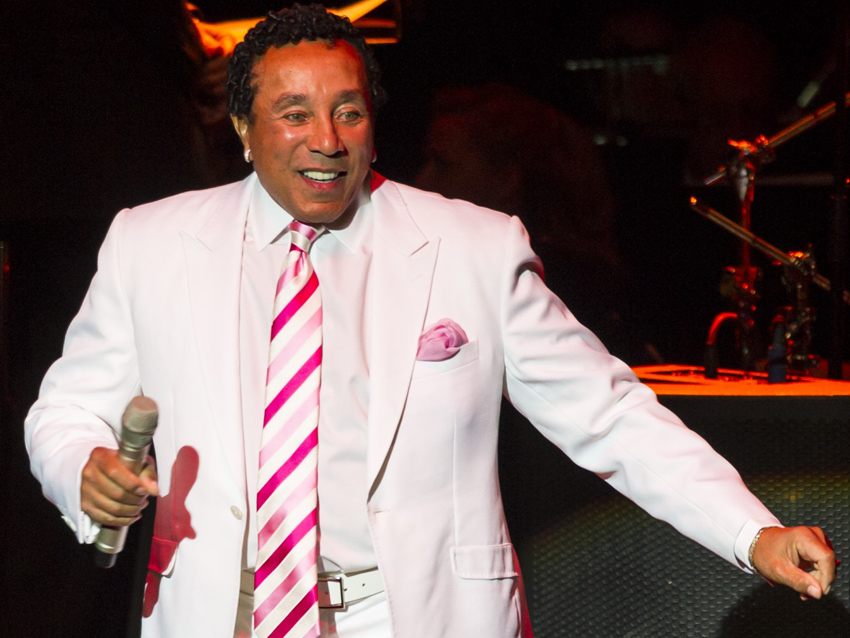
Smokey Robinson
Motown’s premier tunesmith was so inspired during the ‘60s that, as well as writing the hits for his own band The Miracles (Tears of a Clown, The Tracks of My Tears, Second The Emotion) he also had time to pen (among others) My Guy for Mary Wells and My Girl and Get Ready for The Temptations.
This was his golden period, but the fact that he could still co-write Cruisin’ (later sublimely covered by D’Angelo) in 1979 proves that his talent continued to shine.
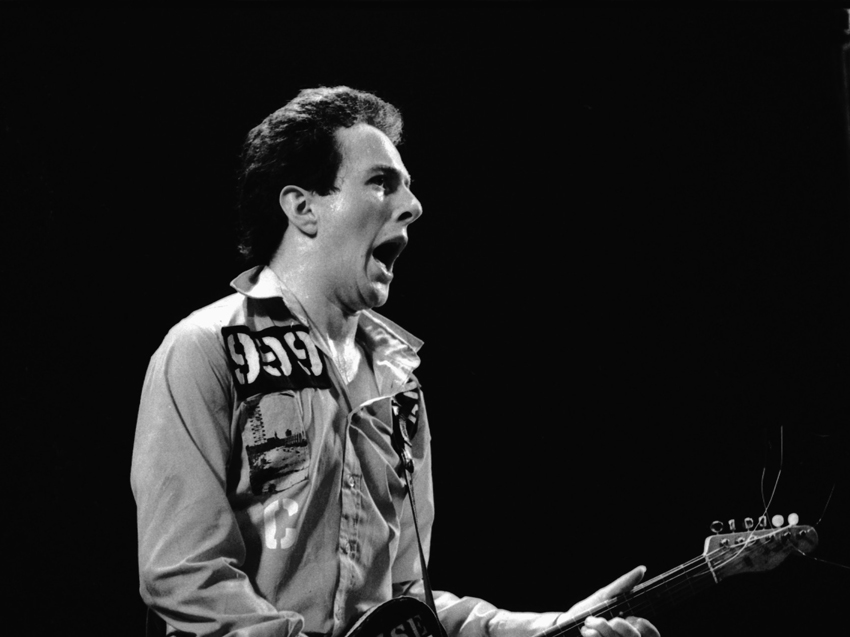
Joe Strummer
Punk's first and finest poet, the Clash frontman was unlike anyone who came before or since.
Passion was his stock in trade, whether railing against mass unemployment (Career Opportunities) or serenading the ghosts of the Spanish civil war (Spanish Bombs). The ideological heart of The Clash, he mixed pop and politics to devastating effect.
His post-punk years proved just as fertile as he continued on the stylistic journey he’d begun in The Clash with bands including Latino Rockabilly War and latterly The Mescaleros. Easily the greatest lyricist punk produced, and the only person on this list to have a Spanish square named after him. Viva Joe Strummer.
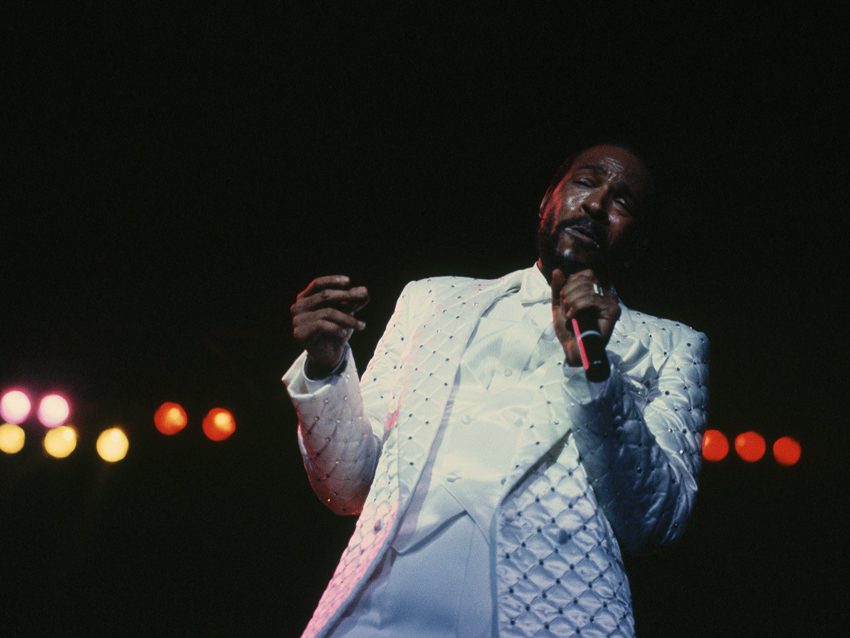
Marvin Gaye
Marvin had hits throughout the ‘60s but never felt like he was truly able to express himself, frequently singing the songs of others.
His creative rebirth came in 1971 with the release of What’s Going On, an album on which he had a songwriting credit on every song. And so his golden ‘70s period began, with Gaye going on to have co or exclusive writing credits one the likes of Let’s Get It On, When Did You Stop Loving Me, When Did I Stop Loving You and Sexual Healing.
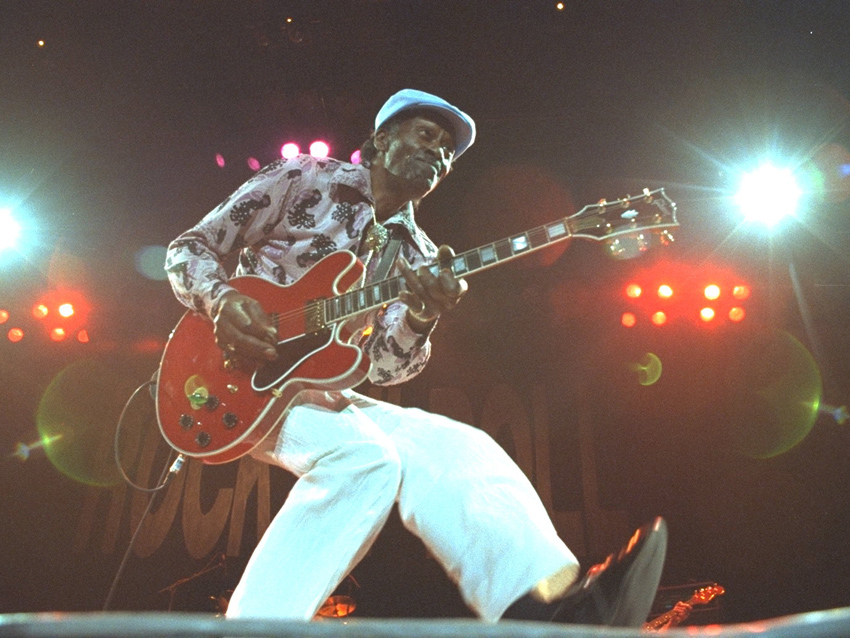
Chuck Berry
Mr Berry's had enough comebacks to rival Madonna. Whether it was his return to Chess and the release of the suggestive My Ding-a-Ling in the '70s, Marty McFly's six-string savaging of Johnny B. Goode in Back To The Future in the '80s, or John Travolta and Uma Thurman's iconic dance sequence to You Never Can Tell in 1994's Pulp Fiction, you don't f*** with Chuck.
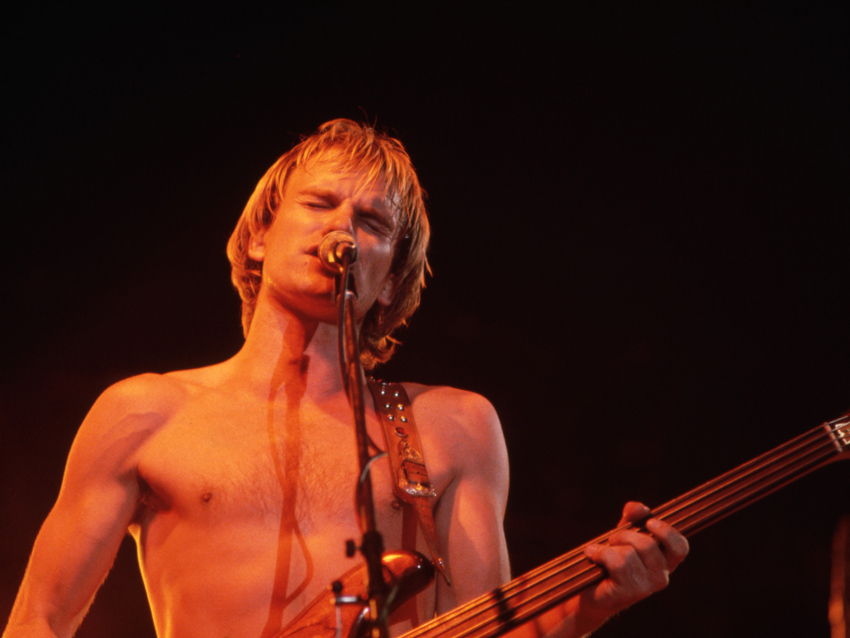
Sting
When Sting was writing his famous street-walker ode, Roxanne, he probably didn't realise he was inadvertently giving rise to a ruinous drinking game (Google it).
Still, it's fair to say that his legacy extends beyond boozed-up freshers. Message In A Bottle, Every Breath You Take, Every Little Thing She Does Is Magic and Fields Of Gold - Sting's been a consistent chart-botherer.

Carole King
Writing with Gerry Goffin, King came up with a string of hits during the ‘60s including Will You Love Me Tomorrow (the Shirelles), Take Good Care of my Baby (Bobby Vee), Up on the Roof (The Drifters) and (You Make Me Feel Lie) A Natural Woman (Aretha Franklin).
She would sing some of these songs herself on Tapestry, her seminal 1971 album. This also featured the likes of I Feel the Earth Move, So Far Away and, of course, You’ve Got a Friend, marking King out as a songwriter of rare distinction.
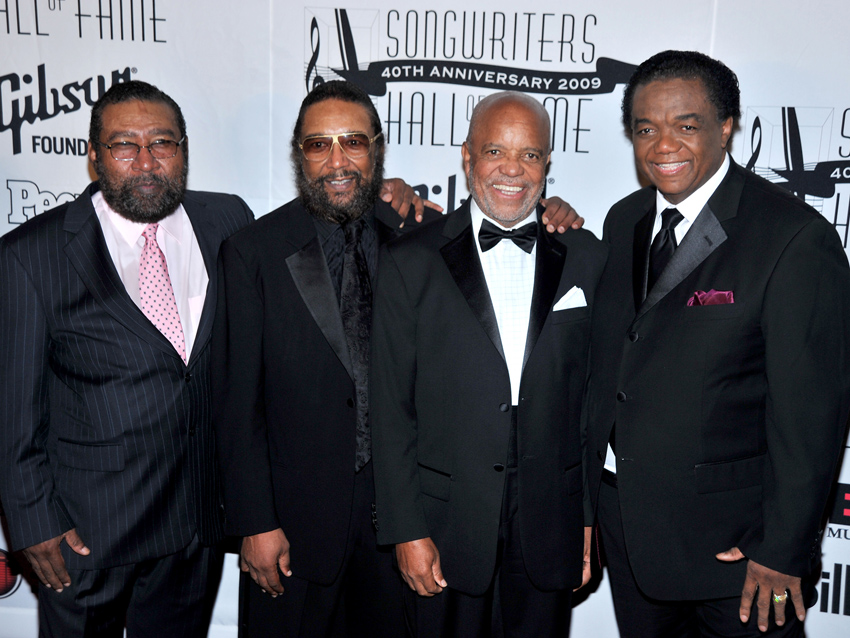
Holland-Dozier-Holland
Their time together as a writing team may have been relatively brief, but Lamont Dozier and brothers Brian and Eddie Holland (pictured above with Berry Gordy) still managed to concoct many of Motown’s greatest hits.
In fact, the trio wrote ten out of The Supremes’ 12 US number 1 singles (Baby Love, Stop! In the Name of Love and You Keep Me Hangin’ On included) and the likes of Reach Out I’ll Be There and Standing in the Shadows of Love for the Four Tops.
Sadly, their relationship with Motown ended in legal acrimony, but for a while, Holland-Dozier-Holland were untouchable.
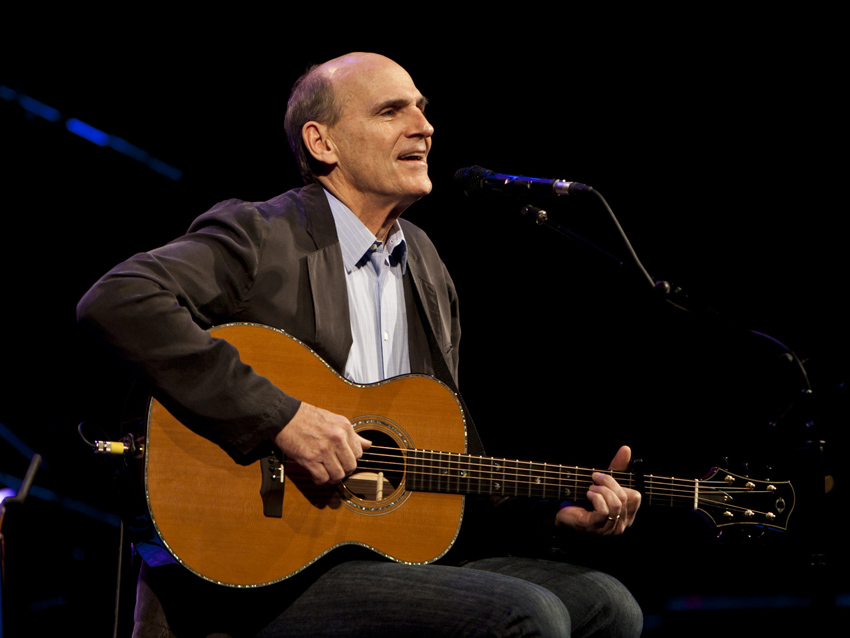
James Taylor
The quintessential introspective singer/songwriter, James Taylor's drug and mental health battles inspired some of his greatest hits, most notably Fire And Rain.
Equally, the tender lyrics and soft acoustic melodies on home-inspired songs like Sweet Baby James and Carolina In My Mind showcase the gentler side of the tumultuous Taylor.
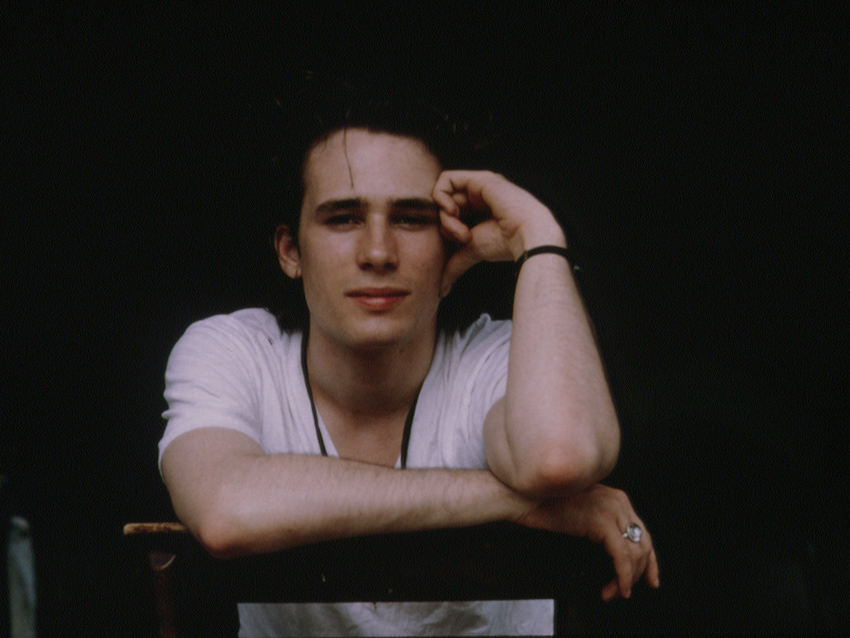
Jeff Buckley
Has any other artist made such an impact with only one album to their name? Debatable. Jeff Buckley's Grace yielded the likes of Mojo Pin, Grace, Last Goodbye and Lilac Wine, plus his stunning reinterpretation of Leonard Cohen's Hallelujah.
The life that he injected into the latter also showcased the broad emotional spectrum that defined Buckley's own writing.
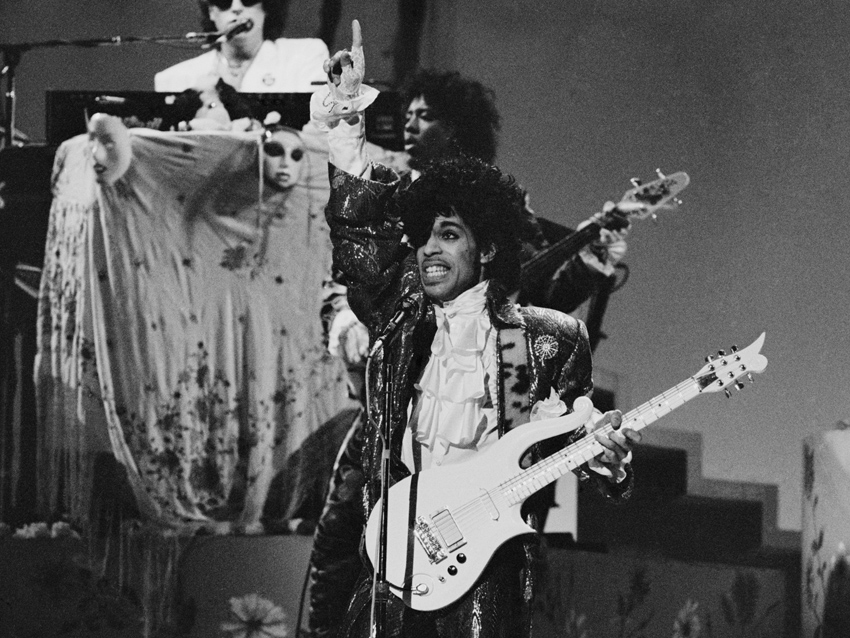
Prince
You might argue that Prince would be even more highly regarded as a songwriter if he’d exercised a greater degree of quality control, but when he’s on form, few can live with him.
Throughout the ‘80s the hits just kept on coming; in fact, he was so prolific that he could afford to give the likes of Manic Monday and Nothing Compares 2 U away to other artists.
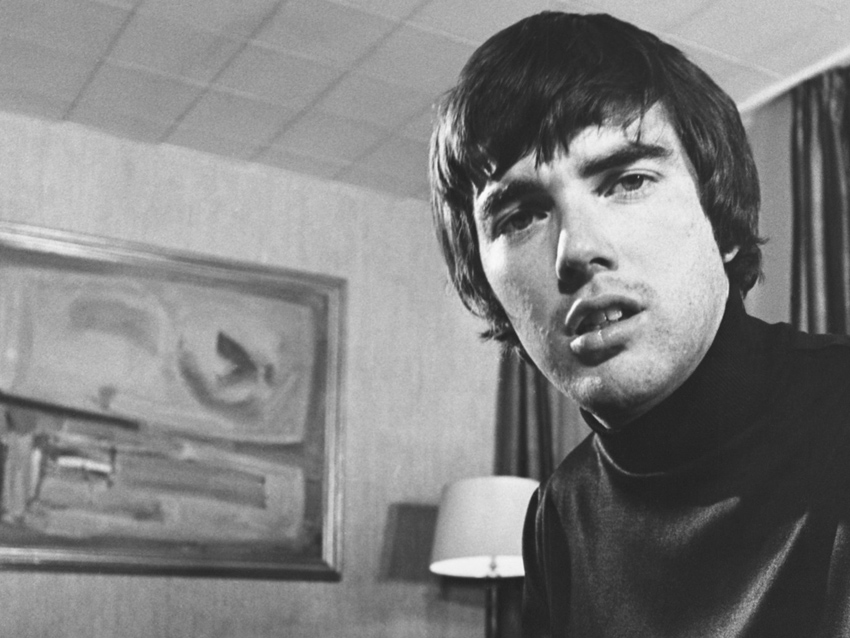
Jimmy Webb
An over-the-top, seven-minute opus that combined rock and mystical, melodramatic pop, with a sonic bed that included a harpsichord, an orchestra and a choir, along with fanciful lyrics about somebody leaving a cake out in the rain, all sung by an actor (Richard Harris) who couldn’t really sing - a sure-fire recipe for success, right?
At first, everybody thought that writer-producer Jimmy Webb overplayed his hand with MacArthur Park, but the unconventional song became one of 1968’s biggest, most glorious smashes. There were other more mainstream-friendly hits - lots of them, in fact. By The Time I Get To Phoenix, Up, Up And Away, Witchita Lineman, The Worst That Could Happen, Galveston - the Jimmy Webb style was to have no particular style, only steadfast hooks and pathos-packed lyrics that were everlasting.
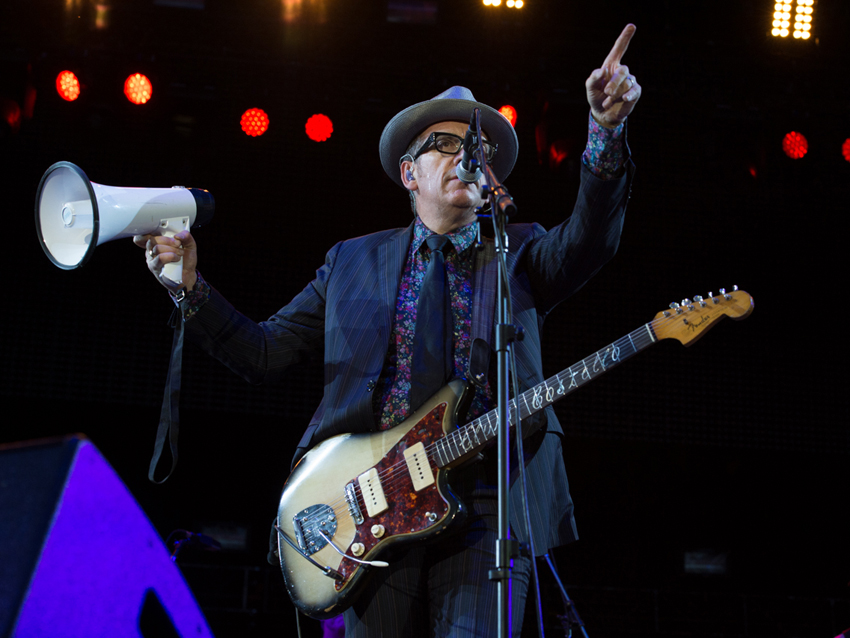
Elvis Costello
Kicking off his career with one of the greatest debut records of all time, 1977’s My Aim Is True, Elvis Costello appeared frighteningly fully formed.
Spiky power pop like (The Angels Wanna Wear) My Red Shoes rubbed shoulders with biting ballads (Alison) and cynical examinations of the TV generation (Watching The Detectives), but Costello was only getting started. He’s since covered everything from jazz to country, soul and soundtracks, a restless and ambitious talent who has yet to run out of fresh ideas.
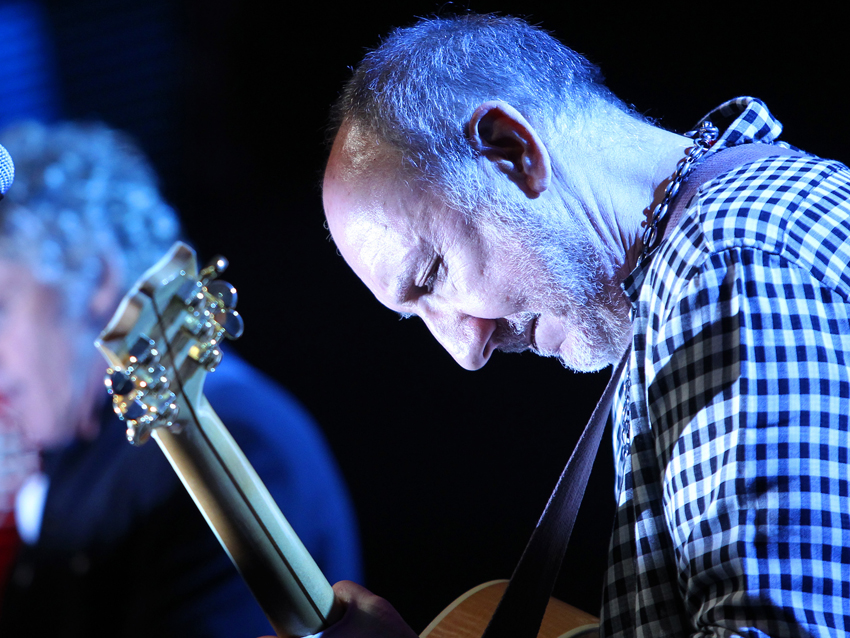
Pete Townshend
Smasher of guitars, windmiller of arms and the driving force behind The Who - a band with four separate nuclear reactors going off at the same time - Pete Townshend has earned his place at the top table of British songwriters time and time again.
One of the most intriguing and original writers of the 60s, his relentless stream of ideas and ability to pick towering riffs out of the air at will propelled The Who to superstardom. He gave voice to a particularly British type of teenage angst with songs like Can’t Explain, Who Are You, Won’t Be Fooled Again and, of course, My Generation, which is more than enough to forgive all those smashed guitars if you ask us.
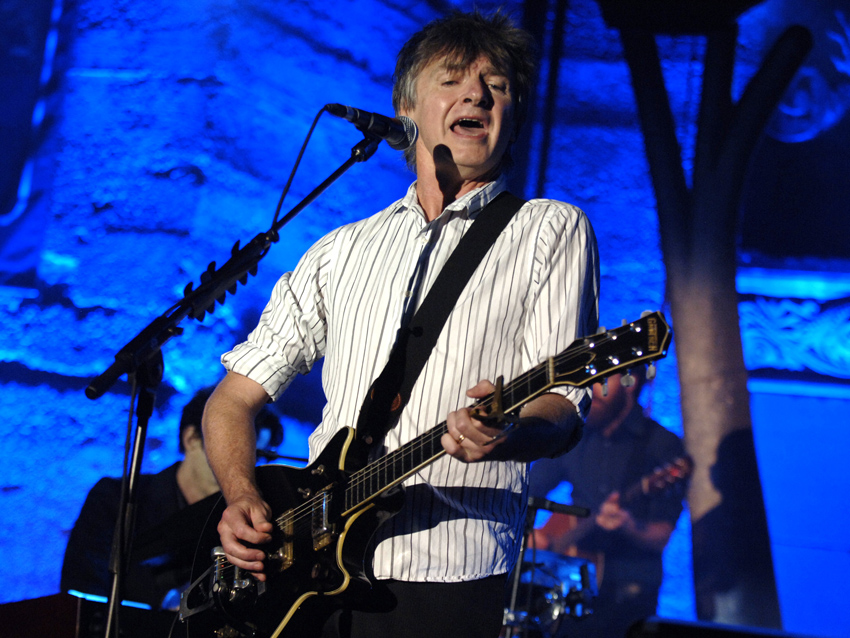
Neil Finn
It’s said that Paul McCartney once described Finn as the best songwriter in the world, which says a lot about the Crowded House man’s ability to craft a tune.
Finn is the archetypal ‘more hits than you think’ guy, and has a way with a melody that would make many an aspiring writer green with envy.
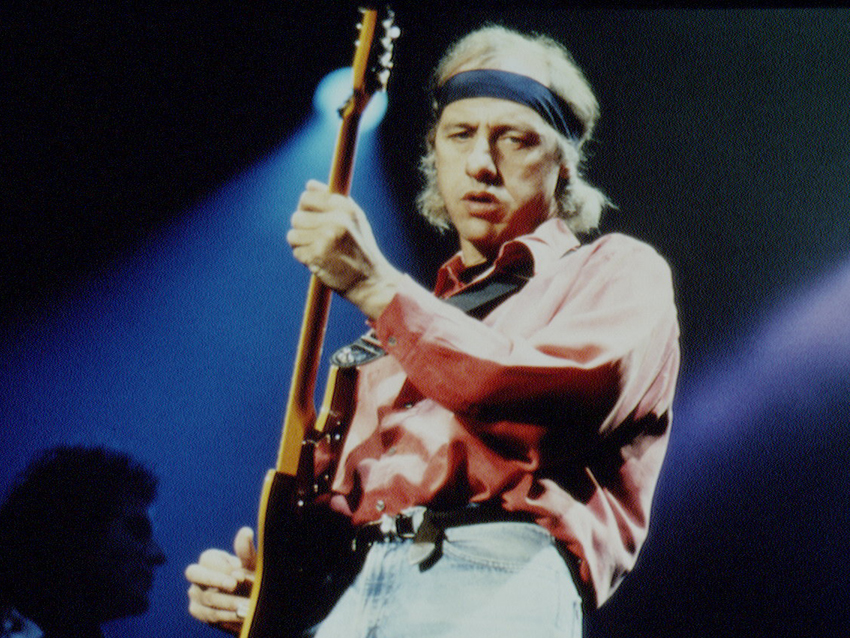
Mark Knopfler
Dire Straits soundtracked a decade, and become one of the biggest bands in the world thanks to Mark Knopfler's beautifully constructed, highly evocative songwriting, aided and abetted by his skilful guitar playing.
1978’s Sultans Of Swing set the template: lyrics loaded with rich characters, a gravelly, Dylan-esque delivery and unforgettable hooks. It was a formula that would dominate the airwaves for the next decade, and while he might not have the same profile now, Knopfler has continued to release first-rate roots-rock as a solo artist.
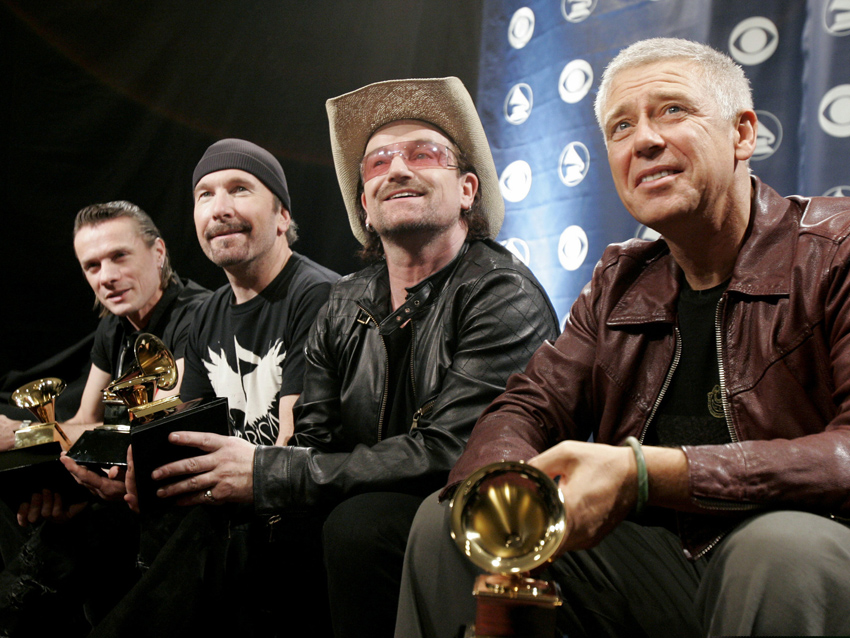
U2
When they first got together in the late ‘70s, the teenaged members of U2 couldn’t play very well, so they turned their limitations into strengths and decided to play like nobody else ever had before.
This was especially true of the band’s genius guitarist The Edge, who did more with three notes, an Echoplex and his feral imagination than a whole fleet of sweep-picking shredders.
Whether dishing out punk-laced new wave, chest-beating anthems, witness-bearing Americana, futuristic dance rhythms or expansive art-rock, the group proved that anything could get on the airwaves as long as the hooks were massive. Ensuring band harmony, U2 split their songwriting equally, although singer Bono most certainly shaped the impassioned lyrical message, broad strokes that can be by turns theological, political, introspectively confessional and ironically arty.
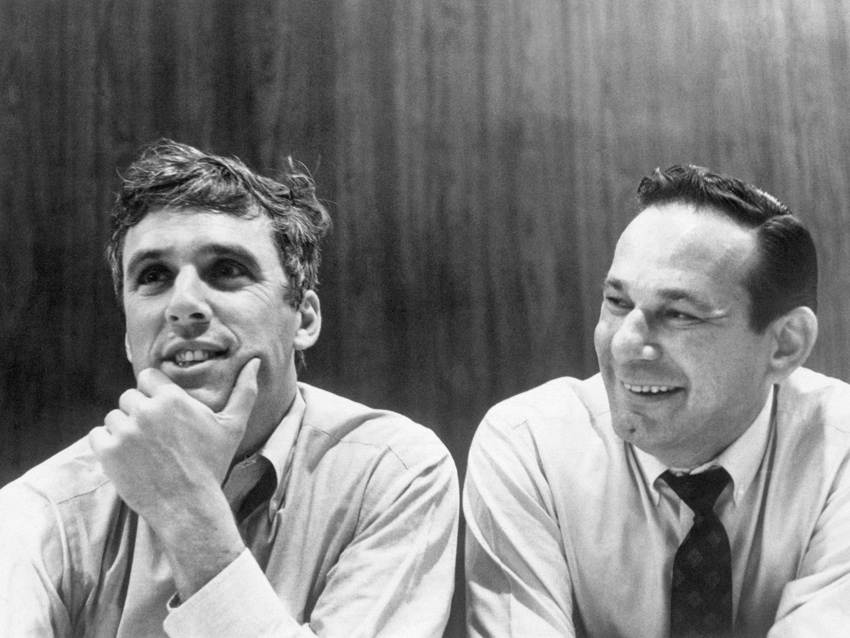
Burt Bacharach/Hal David
What The World Needs Now, Walk On By, I Say A Little Prayer, Wishin’ And Hopin’, Do You Know The Way To San Jose?, The Look Of Love, Close To You, Raindrops Keep Fallin’ On My Head, What’s New Pussycat?, Alfie, I’ll Never Fall In Love Again - honestly, we could do this all day.
Just scanning the titles can fill the senses with breezy, elegant yet eternally memorable melodies. Composer Burt Bacharach could have put “moon, June, spoon” to his songs and they would’ve worked, but with lyricist Hal David’s wry, melancholic and oftentimes aching tales of the heart playing in the souls of all of the lovesick lovers of the world, his tunes transcended AM radio fodder and became poetry.
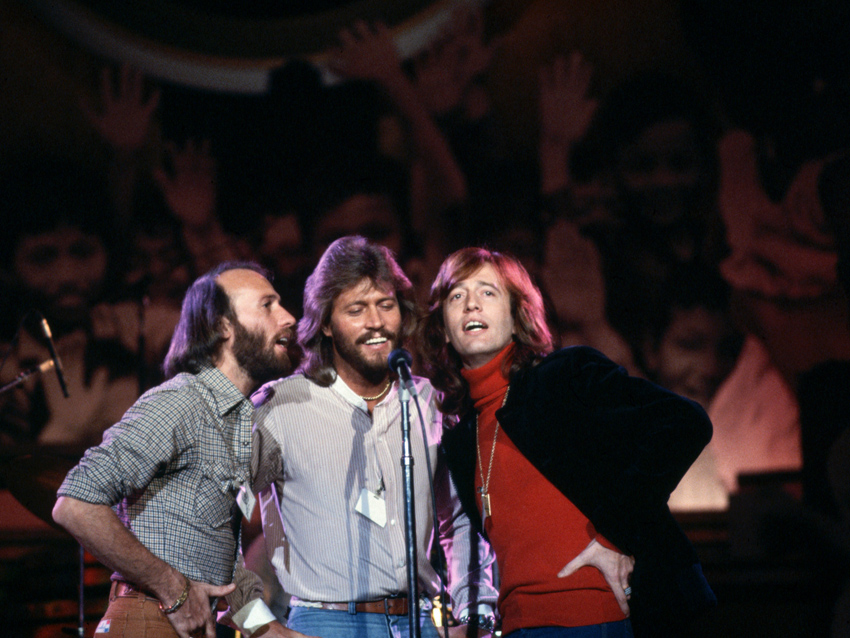
The Bee Gees
They may be best remembered as the smiling, white-suited faces of disco, but the brothers Gibb penned hits across six decades and for a huge range of artists.
Diana Ross, Barbra Streisand, Celine Dion, Kenny Rogers and Dolly Parton are just some of the stars who benefited from Barry, Robin and Maurice’s considerable talents, singing songs that are as well-honed as they are memorable.
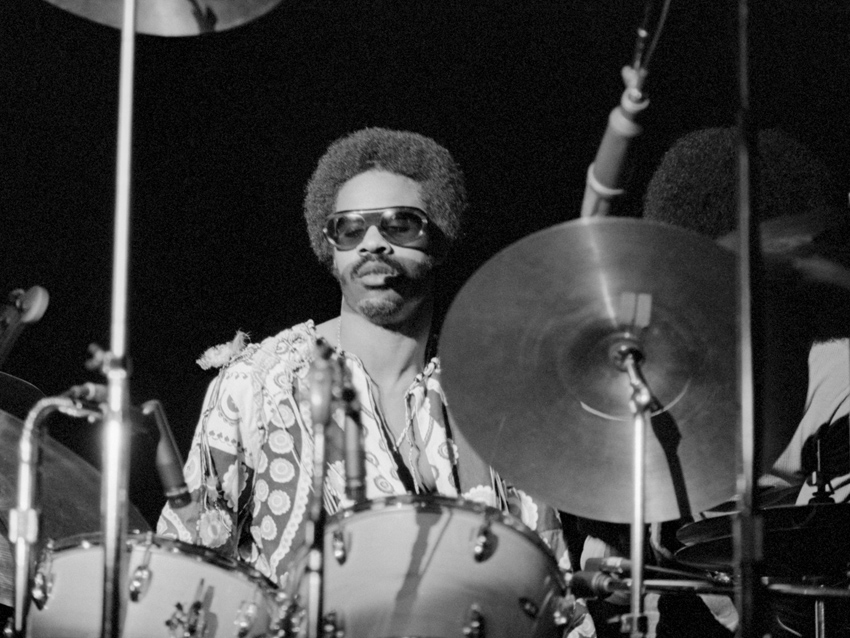
Stevie Wonder
Stevie’s astounding playing skills and embracement of technology wouldn’t have counted for a great deal if he hadn’t had the tunes, but his back catalogue is stuffed with hits that have become modern standards.
Whether you’re looking for driving funk or soaring balladry, Stevie has a song for that.
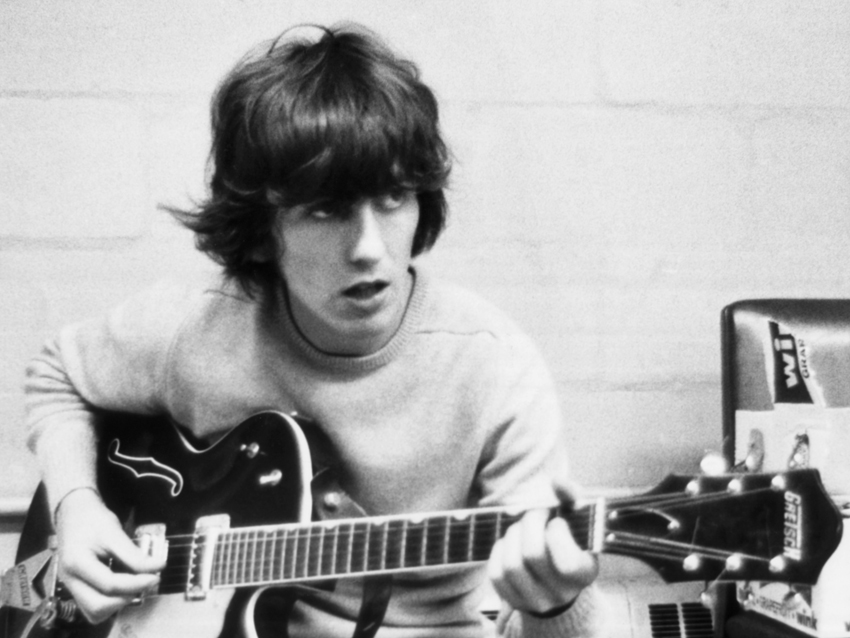
George Harrison
Quite apart from writing Frank Sinatra’s favourite Lennon and McCartney song (Something, if the tale is to be believed), the quietest of the Fabs was also the Beatle songwriting secret weapon.
Wide-eyed early efforts like Don’t Bother Me quickly gave way to stone-cold classics including If I Needed Someone, Taxman, While My Guitar Gently Weeps and Here Comes The Sun. As if that little lot weren’t enough, George went into songwriting overload as The Beatles imploded, releasing easily the best of the four’s early solo albums in All Things Must Pass, and generally going about the place being a bit of a dude.
There’s a reason that Dylan respected George so much, and it wasn’t just because he could grow such a phenomenal beard (although it probably helped).
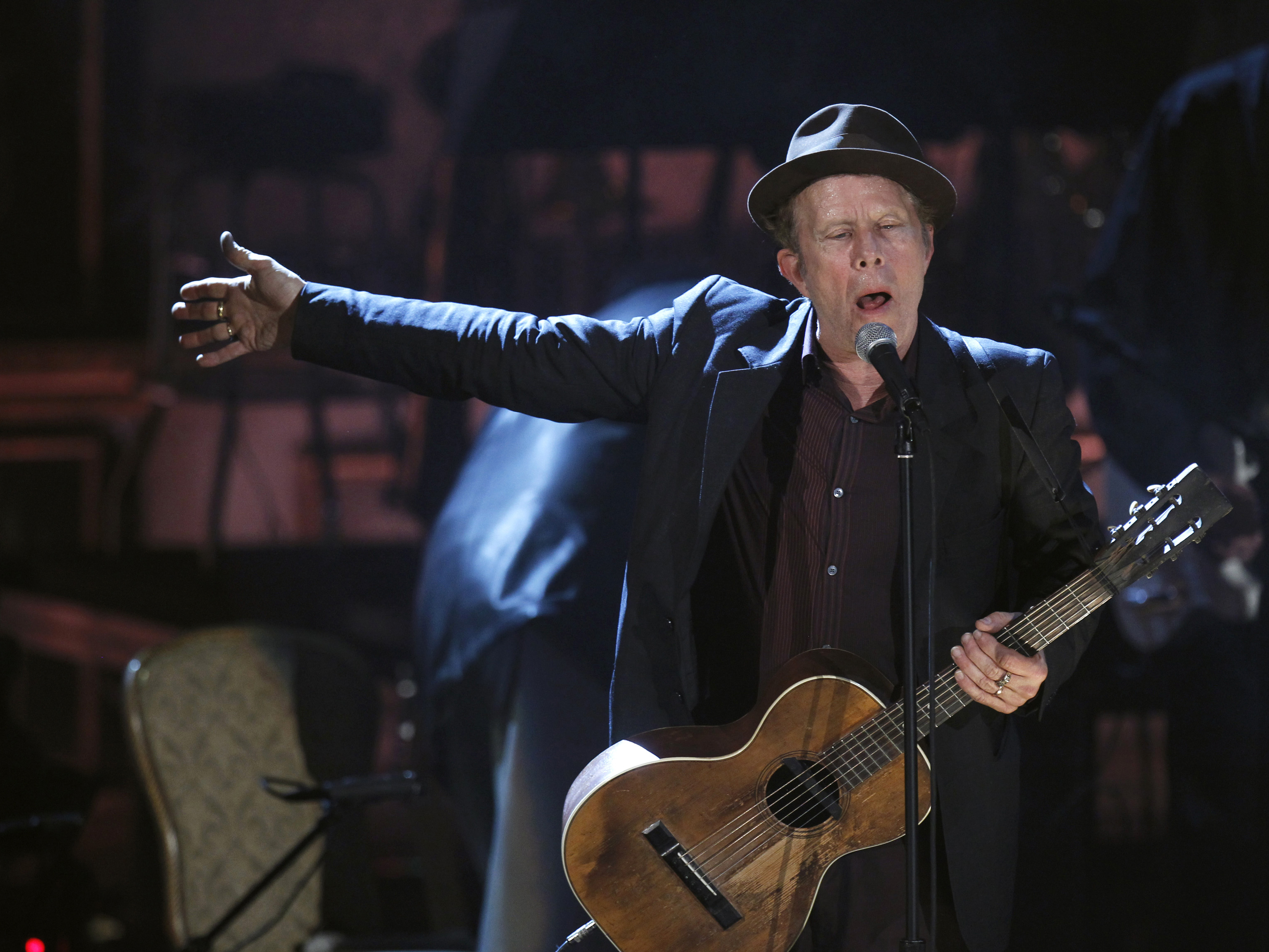
Tom Waits
While he might be best known for the rough beauty of his gravely, whiskey-soaked singing voice, Waits’ abundant skill as a songwriter should never be overlooked.
As a lyricist, he’s excellent at painting atmospheric portraits of terrifying gothic characters caught up in depraved cautionary tales. Musically, he pulls influences from the deepest roots of blues and jazz, and seamlessly blends them with his own dark, experimental tendencies. Few songwriters can conjure darkness and depravity like Waits can.
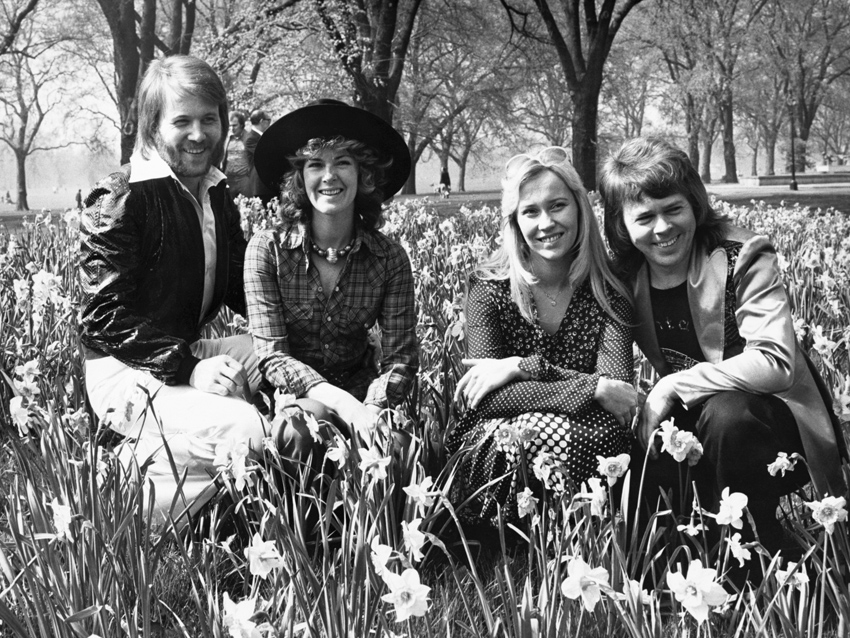
Björn Ulvaeus/Benny Andersson
ABBA's songwriting super troopers enjoyed enormous success during the band's '70s heyday before becoming spectacularly unfashionable (and therefore the ultimate guilty pleasure) in the ensuing decades.
Nowadays, ABBA fans are out and proud - and rightly so. Björn and Benny's compositions contain some of the most complex harmonies in pop history, which is probably why no one can pull-off a decent cover version.
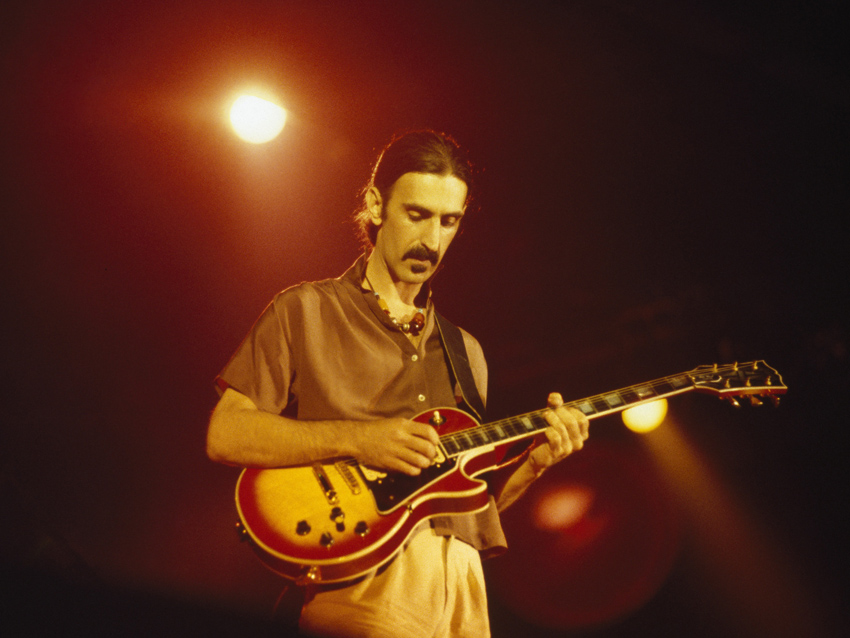
Frank Zappa
Many of the songwriters on this list made it here because they wrote vanilla ear-candy with a wide appeal. That is not an accusation that can be levelled at Frank Zappa.
Now a byword for all things experimental, Zappa pushed rock and pop music's boundaries both lyrically and musically, at once embracing and lampooning rock's inherent silliness.
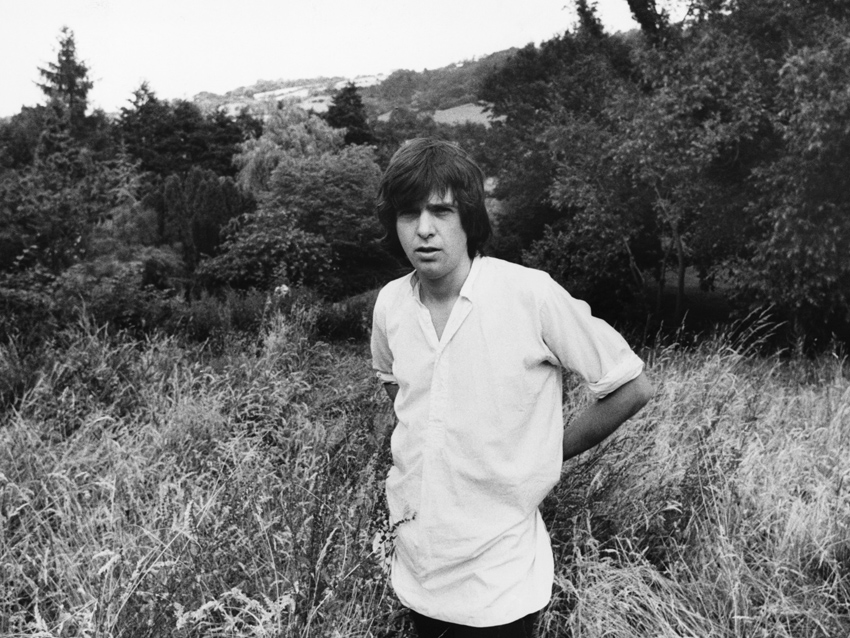
Peter Gabriel
Depending on your musical persuasion Peter Gabriel's songwriting skills were either at their finest during Genesis's uninhibited 'classic era' albums like The Lamb Lies Down On Broadway, or during the latter solo period that gave birth to hits such as Sledgehammer.
Whatever your preference - prog, pop or 'world' - it's hard to deny Gabriel's genre-spanning credentials.

Martin Gore
Depeche Mode's main songwriting force helped define the sound of ‘80s synth-pop and new wave with big hitters such as Personal Jesus and Enjoy The Silence. Since then, he and the band have gone on to sell more than 100 million albums and singles and - rarest of all for an '80s act - retain critical acclaim.
Enjoy The Silence? No thank you.
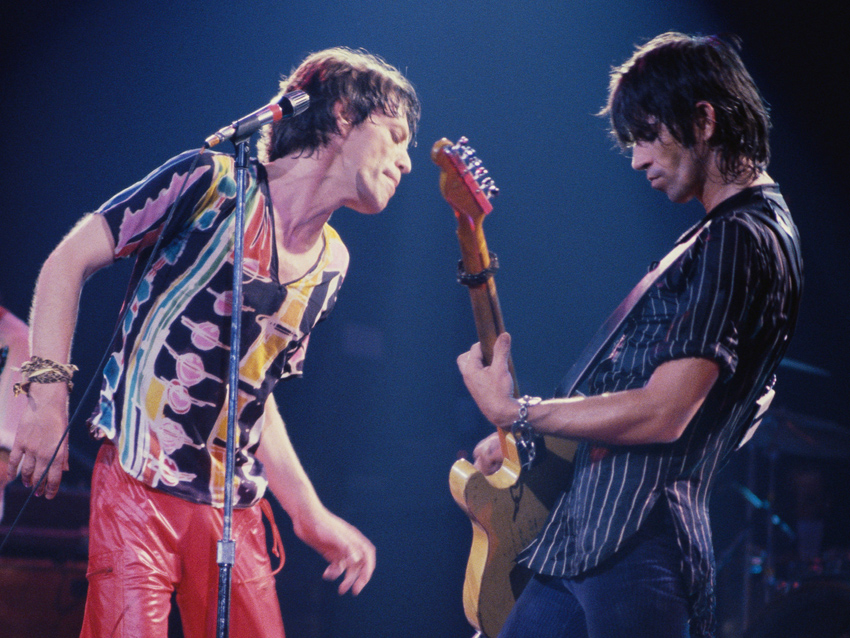
Mick Jagger/Keith Richards
It's fortunate that when Andrew Loog Oldham first locked Mick Jagger and Keith Richards in a room - informing them that he wouldn't open the door until they'd written a song - the Stones songwriters managed to produce the goods.
Otherwise, well, not only would we have two corpses in a loft somewhere in West London, we'd also not have sublime blues-rock crossover classics like (I Can't Get No) Satisfaction.
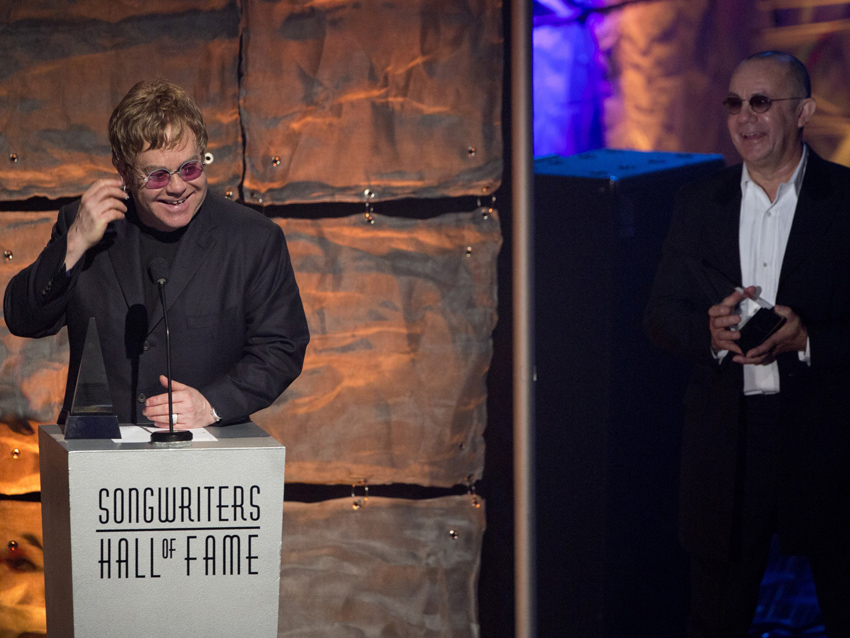
Elton John/Bernie Taupin
Working completely separately, Elton (music) and Bernie (lyrics) somehow managed to develop a songwriting partnership that has endured for more than 45 years.
Everyone knows the hits, of course, but the duo’s back catalogue is so vast and full of quality that previously lesser-known songs are constantly being rediscovered (see Tiny Dancer from the Almost Famous soundtrack).
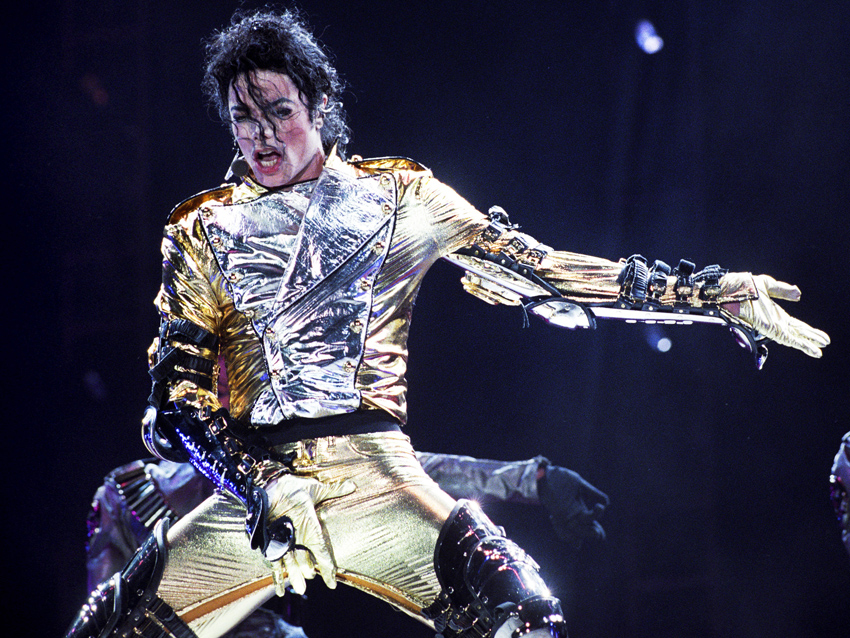
Michael Jackson
Although some of Jackson’s world-conquering hits were penned by others, it’s worth remembering that the man himself was also capable of writing a tune.
Beat It, Billie Jean, Bad and The Way You Make Me Feel are among the many finger-snapping anthems to be credited to The King Of Pop, while Happy Birthday Lisa - the song he wrote for his appearance in The Simpsons - demonstrates that, even in throwaway mode, he had an ear for a melody.
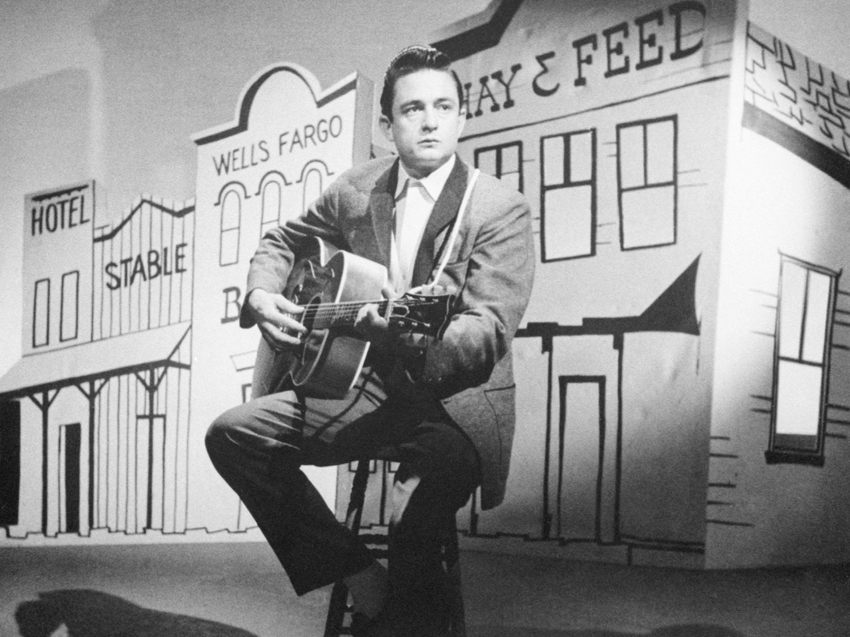
Johnny Cash
The Man In Black had a lot going for him: a voice like thunder coated in honey, a distinctive band and, the icing on the cake, formidable songwriting ability.
A natural storyteller whose talent traversed country, folk, rockabilly and pop, Johnny Cash’s rebel image and deceptively direct approach made him one of the early heroes of popular music. The diverse range of his classic songs, such as Big River, Folsom Prison Blues and the irrepressible Get Rhythm, show just how many moods and styles the big man had in his pocket.

James Hetfield
Even those that remain dismissive of metal music as a legitimate creative force tend to admit a grudging respect for the songwriting talents of Metallica guitarist/frontman James Hetfield. It's hard to ignore 100 million album sales, after all.
As such, the man that (with bandmate input) penned Fade To Black, One, Enter Sandman and Master Of Puppets has stopped listening to the critics.
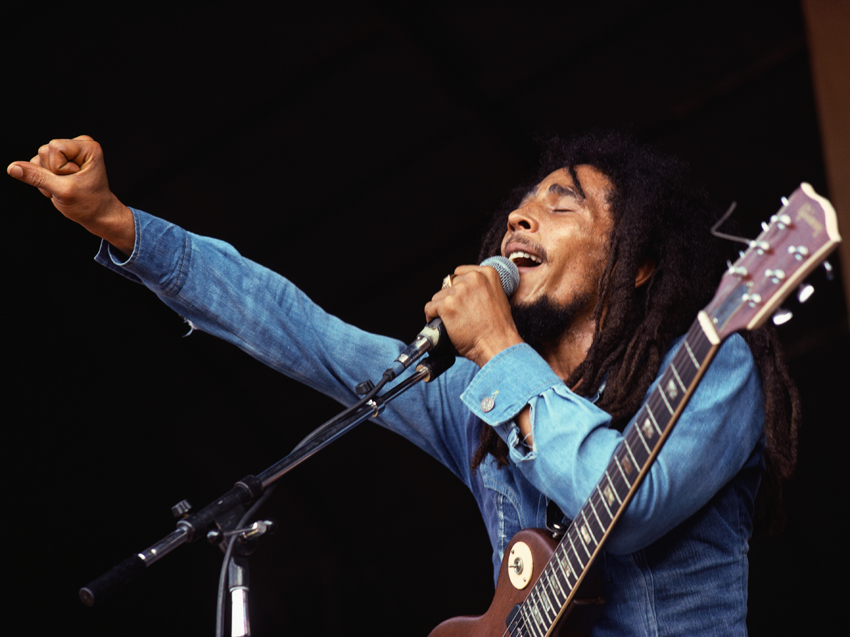
Bob Marley
When you mention reggae to most people, there’s only one name that springs to mind: Bob Marley.
Mixing an instinctive gift for pop with a deep spiritual conviction, his innate songwriting ability made him the first Jamaican superstar. Setting bittersweet lyrics to glorious melodies (Waiting In Vain, Could You be Loved), his tragic death at the age of 36 was a cruel loss of a towering talent.
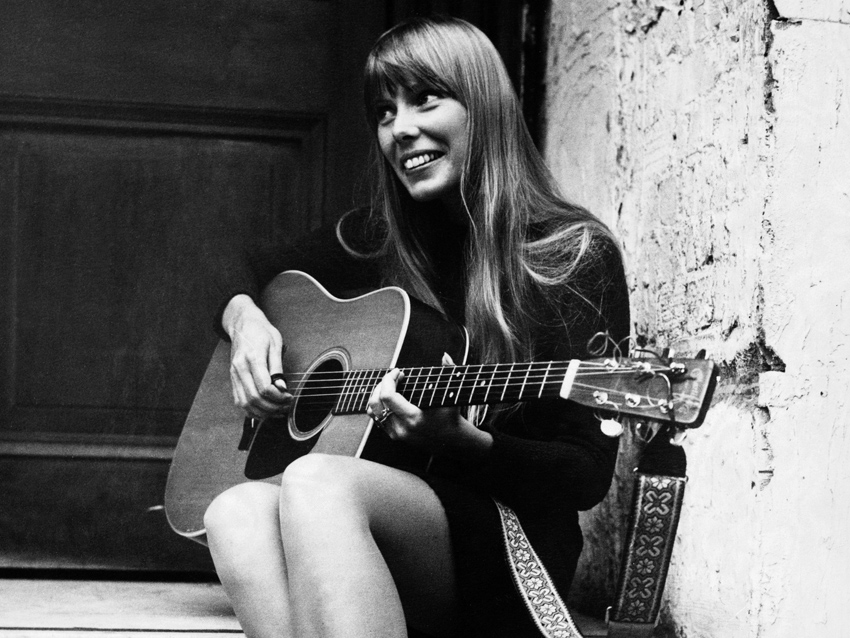
Joni Mitchell
Featuring elements of folk, jazz, pop and rock, the Joni Mitchell songbook is one that rewards time spent discovering it.
From Big Yellow Taxi and A Case of You, Joni quickly moved into more experimental territory, yet still managed to achieve big commercial success with the fusion-influenced Court and Spark album.
With her non-standard guitar tunings it’s true that Mitchell’s songs sound unlike anyone else’s, but that’s one of the reasons she’s so loved and influential.
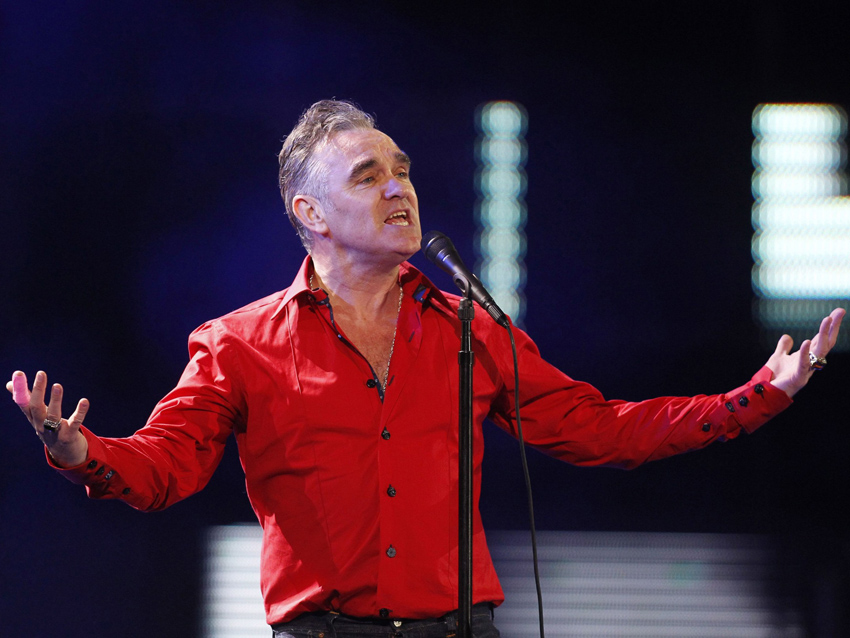
Morrissey/Johnny Marr
As with the best creative sparks, the songwriting partnership of Morrissey and Marr burned too brightly to last.
Marr laid a base of astonishing chordal work and technical innovation, while Morrissey's unparalleled lyrical barbs and dandified vocal delivery unified a set of songs that ranged from grandiose guitar epic How Soon Is Now? through to touching vignettes like Please, Please, Please Let Me Get What I Want.
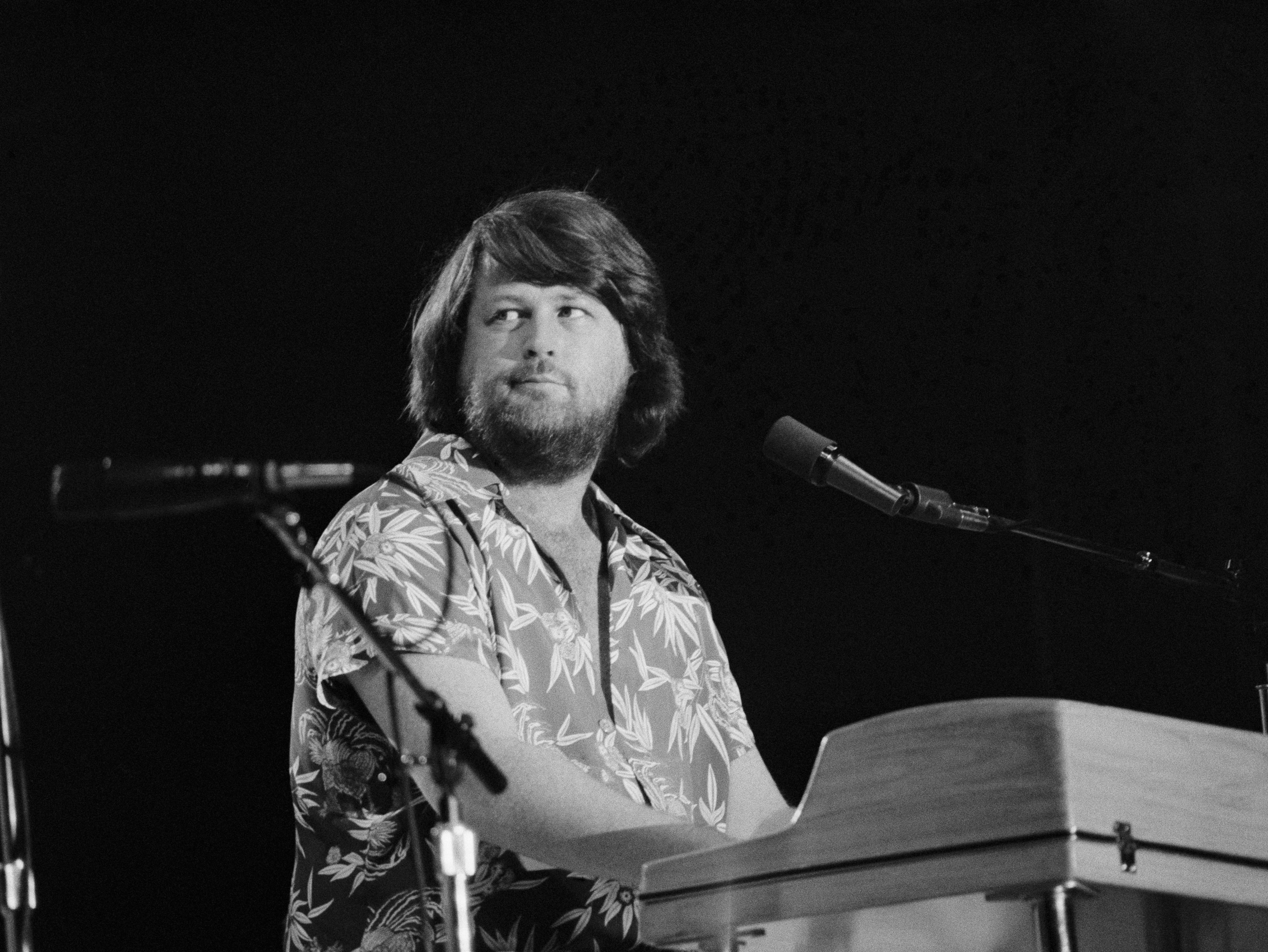
Brian Wilson
At the height of his creativity in the 1960s, troubled Beach Boy Brian Wilson created some of the most influential and ambitious pop recordings of all time.
Obsessed with competing with Phil Spector’s iconic Wall Of Sound recordings, Wilson’s work as the dominant creative force behind the Beach Boys saw him constantly experimenting with the shape of pop music; creating truly unique arrangements, complex harmonies and hugely experimental studio recordings.
Alongside Spector, Wilson was hugely influential in blurring the lines between the roles of songwriter, studio engineer and record producer. A true musical auteur, if you will
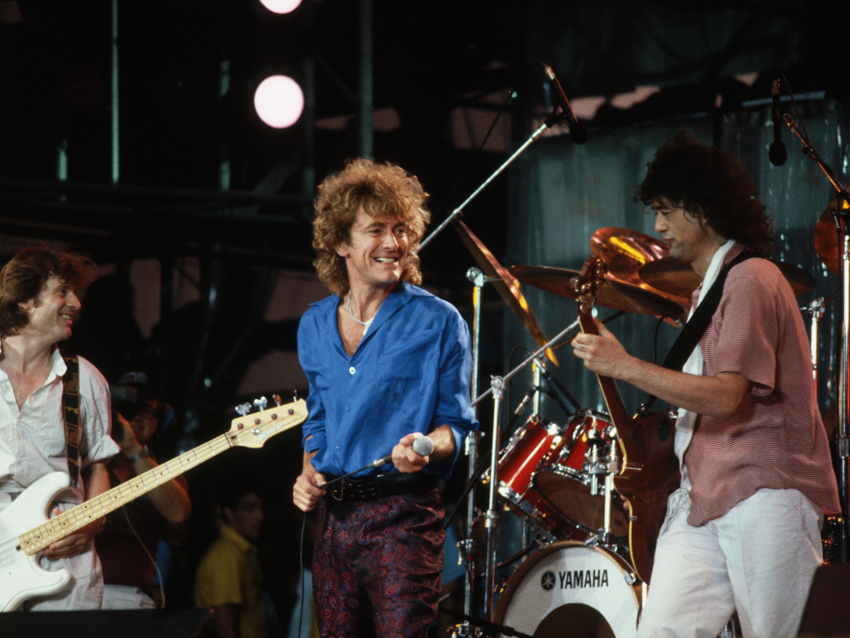
Jimmy Page/Robert Plant
The US critics saw Led Zeppelin as British marauders and chancers, mocking the band for their fantasy inspirations and spring-cleaning May Queens, but to the rest of the world, Page and Plant were golden songwriting gods.
What's more, they produced Led Zeppelin I, II, III and IV in just over two and a half years. What have you done lately?

Paul Simon
An uncanny melodic instinct made Paul Simon one of the biggest stars of the sixties and seventies.
Writing standards by the handful during his tenure with Simon & Garfunkel, including timeless classics like Bridge Over Troubled Water, The Boxer and Mrs Robinson, his mastery of the craft seemed unstoppable. Which, of course, it was – Graceland proved his talent shone through in any context, and the hits kept coming. About as natural and prolific a songwriter as America has ever produced.

David Bowie
It’s hard to fault Bowie’s career. He’s been an ever-adaptable master of reinvention, seemingly able to craft his songwriting to stay ahead of the curve in whichever scene, city or decade he finds himself in.
He’s created some of the most cohesive and conceptually complete long form releases in pop music history, yet he’s also responsible for a run of utterly iconic hit singles. Sure, he had the odd dodgy moment in the ‘90s - it’s questionable whether Bowie’s contributions to drum & bass will ever be remembered alongside his contributions to glam rock - but even at his weakest he’s still innovative and fascinating.
The fact that he returned in 2013, on his 66th birthday no less, with one of the year’s finest rock albums, is just testament to the Starman’s staying power.

Radiohead
You could quite legitimately argue that being a truly great songwriter requires more than just writing a handful of classic songs, it requires the ability to progress and develop ahead of the crowd; to remain more ambitious and forward-thinking than those that follow you.
Undoubtedly, across the course of their twenty-year career, Radiohead have done just that. From being one of the most imaginative of the late-'90s wave of melodic rock bands, to their later experiments with electronic music and classical instrumentation, the Oxford five-piece - and their longstanding collaborator Nigel Godrich - have constantly remained one of the UK's most ambitious ensembles.
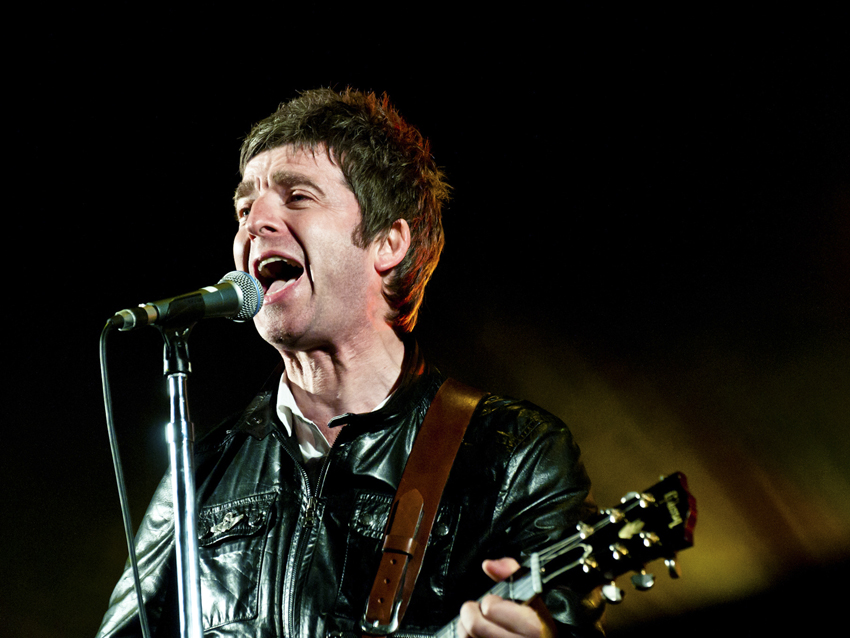
Noel Gallagher
Noel Gallagher is the best British songwriter of the last 20 years. There. We said it. You can disagree if you want, but you’re wrong.
Oasis might get a bit of a bad press in some quarters, but that is to forget how all-conquering Manchester’s finest were in the ‘90s. They were the last truly great British band; a self-fulfilling prophecy that began with the first notes of Rock And Roll Star in 1994 and rode a wave of God-given songwriting ability to dizzying heights.
There was a long period of time that Gallagher couldn’t put a foot wrong. Live Forever, Slide Away, Wonderwall, Don’t Look Back In Anger – everything he touched turned to gold, included a run of phenomenal b-sides that cemented the legend. Since the heady days of the 90s, Gallagher has retained his ability to knock out hit singles, and his arena-filling solo venture with the High Flying Birds quickly picked up where Oasis left off.
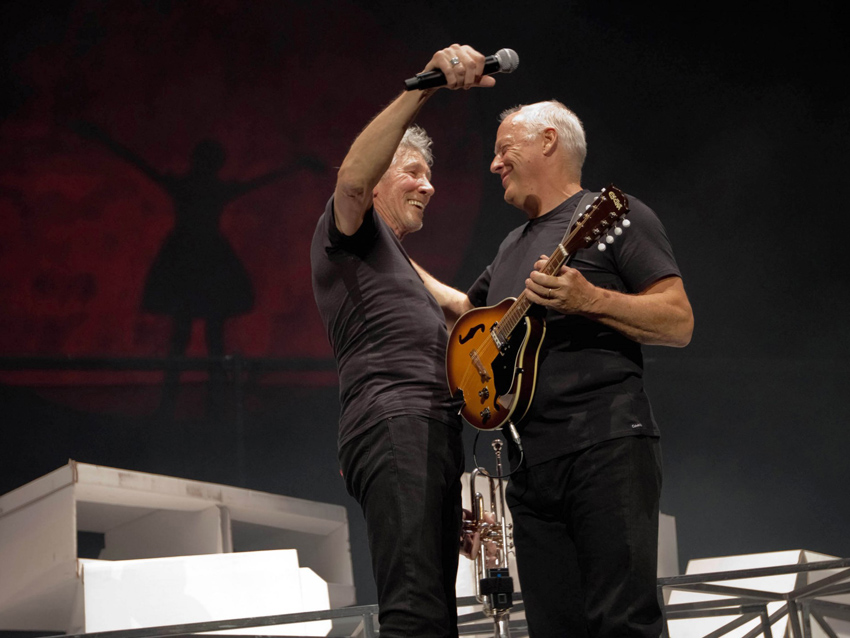
Roger Waters/David Gilmour
It's a testament to the songwriting partnership behind Pink Floyd's greatest successes that Roger Waters and David Gilmour managed to yield everything from stadium-rattling prog masterpieces like The Great Gig In The Sky and Shine On You Crazy Diamond to bonafide, chart-dominating hits like Another Brick In The Wall (Part 2).
From ethereal to anthemic, heavy to soft, they are masters of dynamics - and brave with it, too.
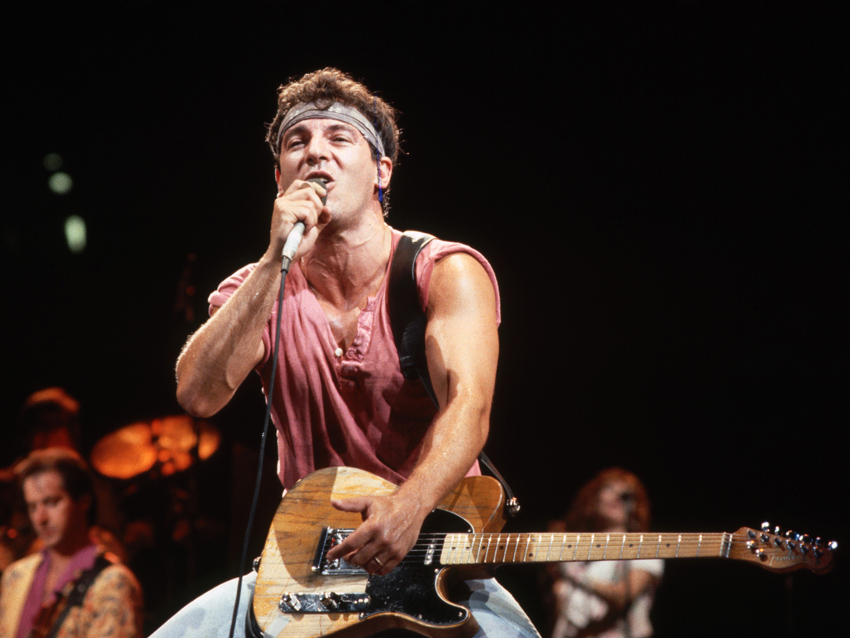
Bruce Springsteen
On his first recordings, Bruce Springsteen lived up to his unenviable billing as the "new Dylan" by rivalling his hero's propensity for dense, colourful, extended wordplay and imagery.
Over the next decade and culminating in the seismic best-seller Born In The U.S.A., Springsteen toned down the verbiage, streamlined the arrangements and aimed his messages squarely at the men and women caught in the wheels of life's daily grind. Oh, yeah, he liked to write about cars, too.
Heralded for his tireless rock 'n' roll shows that bore a certain resemblance to revival meetings, The Boss could also pen soul-stirring ballads, and his contribution to the Philadelphia soundtrack, 1994's Street's Of Philadelphia, was a moody masterpiece, earning Springsteen an Oscar and four Grammy Awards.
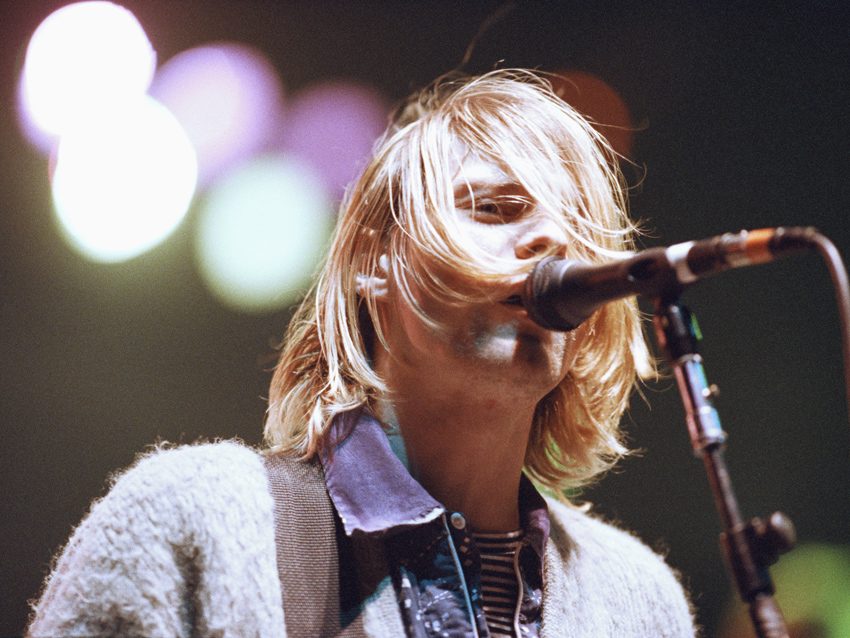
Kurt Cobain
A great song can change the world, or so soppy music journalists like us maintain. And so it was with the rampaging, generation-defining Smells Like Teen Spirit.
You know the rest already - subsequent album Nevermind is consistently held up as one of the best rock albums ever made. So instead we'll ask you where you were when you first heard it? This writer was moshing in a shed.
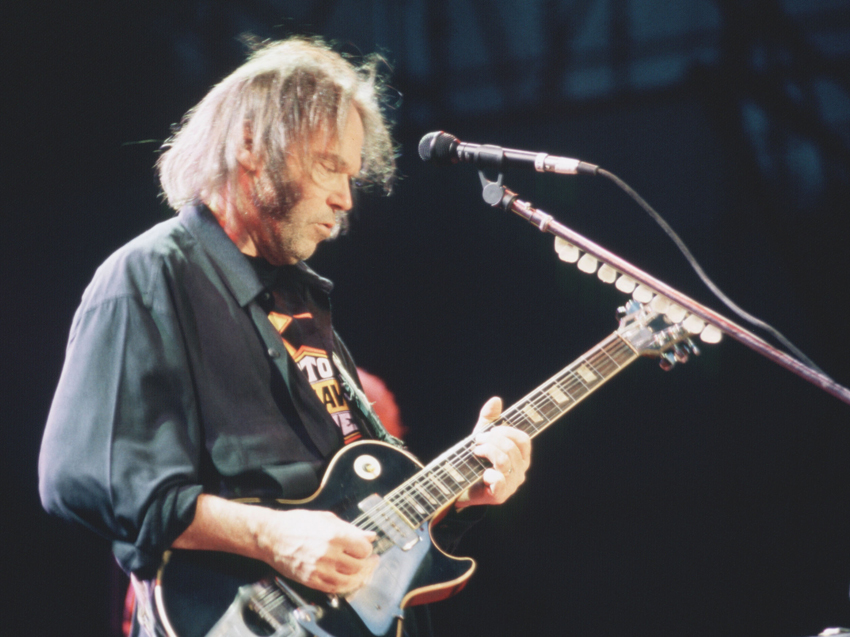
Neil Young
There is nothing that Neil Young hasn’t done better than almost anyone else. Noise rock? Check. Folk? You got it. Country? Rockabilly? Garage rock? Pop? Electronica?
At some point in his career, Neil Young has covered all the bases bar rapping, and frankly, he might be spitting some rhymes into a mic now such is the unpredictability of the man.
With one of the coolest CVs in rock, he made timeless pop with Buffalo Springfield, ultimate hippy folk-rock with Crosby, Stills, Nash and Young and basically invented rocking out with Crazy Horse.
Able to twist any style into a shape that is all his, Neil Young remains one of the most expressive, unique and restless songwriters on the planet, constantly on the prowl for a something different and pursuing a path that has led to the creation of some of the greatest songs of the last 50 years.
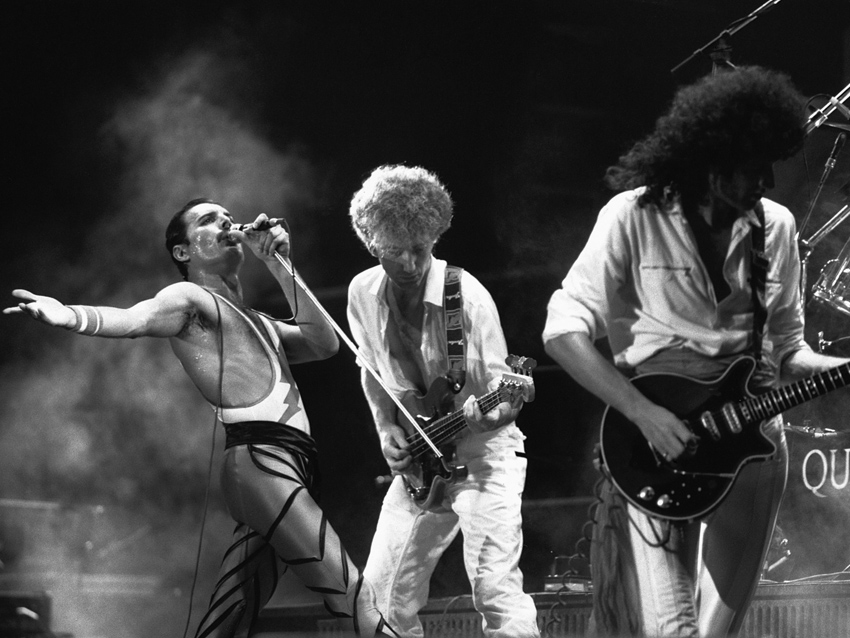
Queen
Queen had a peculiar brand of genius that can only emerge when an astrophysicist, an art student and a trainee dentist join forces to change the face of rock.
Perhaps predictably it was the art student, Freddie Mercury, who had the vision, but the rest of the band had the guts to support him in mad songwriting endeavours such as Bohemian Rhapsody.
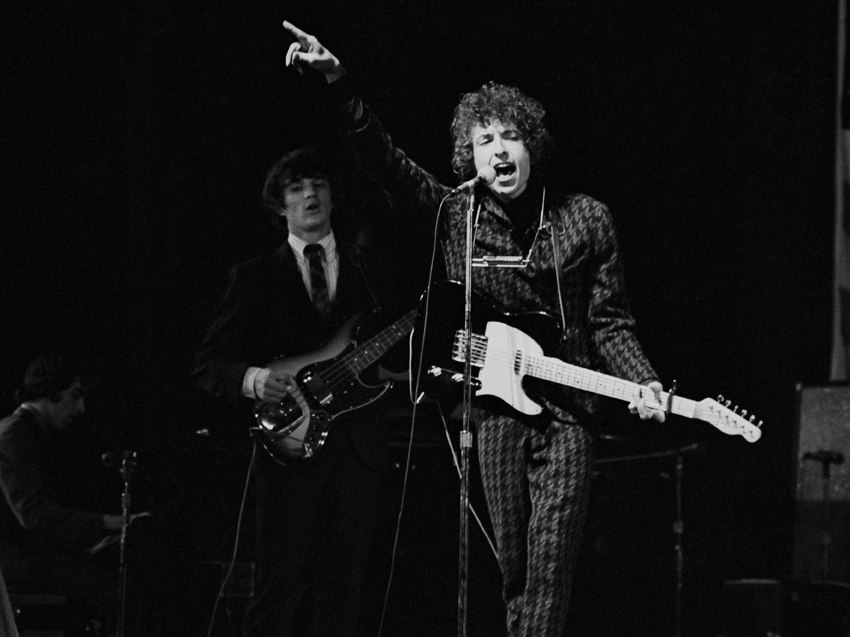
Bob Dylan
Occasionally, you’ll meet people who say they don’t like Dylan. They’ll say the songs are too long, the voice too scratchy, the lyrics too dense. These people are wrong. Because whether you can see it or not, Bob Dylan is a genius.
A one-man songwriting revolution, Dylan wrote the soundtrack to the decade that changed popular culture for good. He made The Beatles better, gave the civil rights movement hymns of hope, invented genres and blew minds, all without breaking a sweat.
Dylan’s evolution from acoustic troubadour to folk-rock innovator and beyond is well charted, but he continued to produce the goods way past his years of legend in the 60s and 70s. His formidable back catalogue is full of hidden masterpieces, his commitment to the art and craft of songwriting consistently managing to make everyone else look dull and unimaginative by comparison.
He’s the Shakespeare of pop music, defining an entire new vocabulary through writing that has encompassed the full range of human experience. Yep, he’s that important, that unfathomable and that brilliant. His influence in incalculable, his output vast; frankly, we’re all lucky to be sharing a planet with the man.
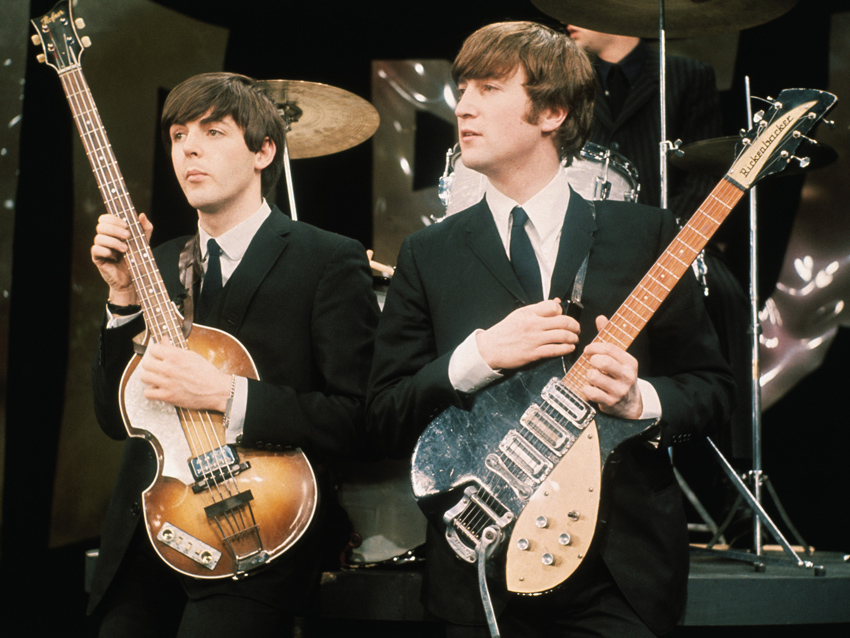
John Lennon/Paul McCartney
The remarkable thing isn't how well their songs have aged; it's that they haven't aged at all. Born of collaboration and ending as competition, the catalogue of material by John Lennon and Paul McCartney is the indisputable and indispensable songbook of the modern era, a staggering collection of compositions that, one-by-one, changed, challenged and defined the times with a beauty that still feels endless.
From their first raw, exuberant Merseybeat recordings right on through to the sophisticated, breathtaking rock arias of Abbey Road, the songs of Lennon and McCartney set standards, broke moulds and created genres and subgenres.
History has tagged Lennon "the gutsy rocker" and McCartney "the sensitive balladeer," but the ying and the yang were often indistinguishable. Lennon's greatest love songs (This Boy, If I Fell) ached with naked vulnerability, while Macca's raucous raves (I'm Down, Helter Skelter) screeched with unhinged fury.

MusicRadar is the internet's most popular website for music-makers of all kinds, be they guitarists, drummers, keyboard players, DJs or producers.
GEAR: We help musicians find the best gear with top-ranking gear round-ups and high-quality, authoritative reviews by a wide team of highly experienced experts.
TIPS: We also provide tuition, from bite-sized tips to advanced work-outs and guidance from recognised musicians and stars.
STARS: We talk to artists and musicians about their creative processes, digging deep into the nuts and bolts of their gear and technique. We give fans an insight into the actual craft of music-making that no other music website can.
“KIKI BOY 2025”: Frank Ocean appears to be teasing something... or other
“Not quite my cup of tea… I feel like I’d hear this on iHeartRadio or something”: Bon Iver’s Justin Vernon takes to the streets of New York to play people his new album… and nobody knows who he is
“KIKI BOY 2025”: Frank Ocean appears to be teasing something... or other
“Not quite my cup of tea… I feel like I’d hear this on iHeartRadio or something”: Bon Iver’s Justin Vernon takes to the streets of New York to play people his new album… and nobody knows who he is









